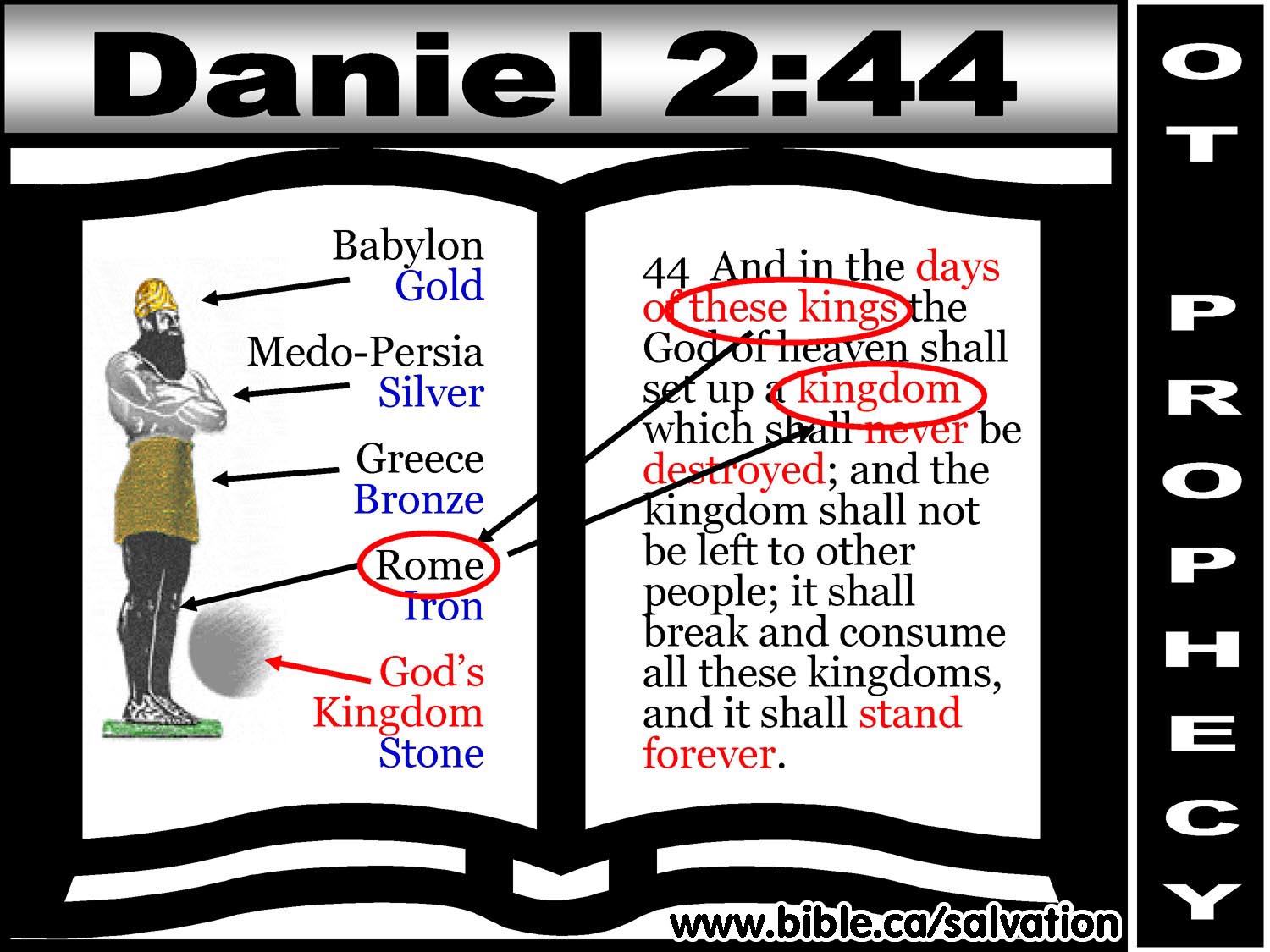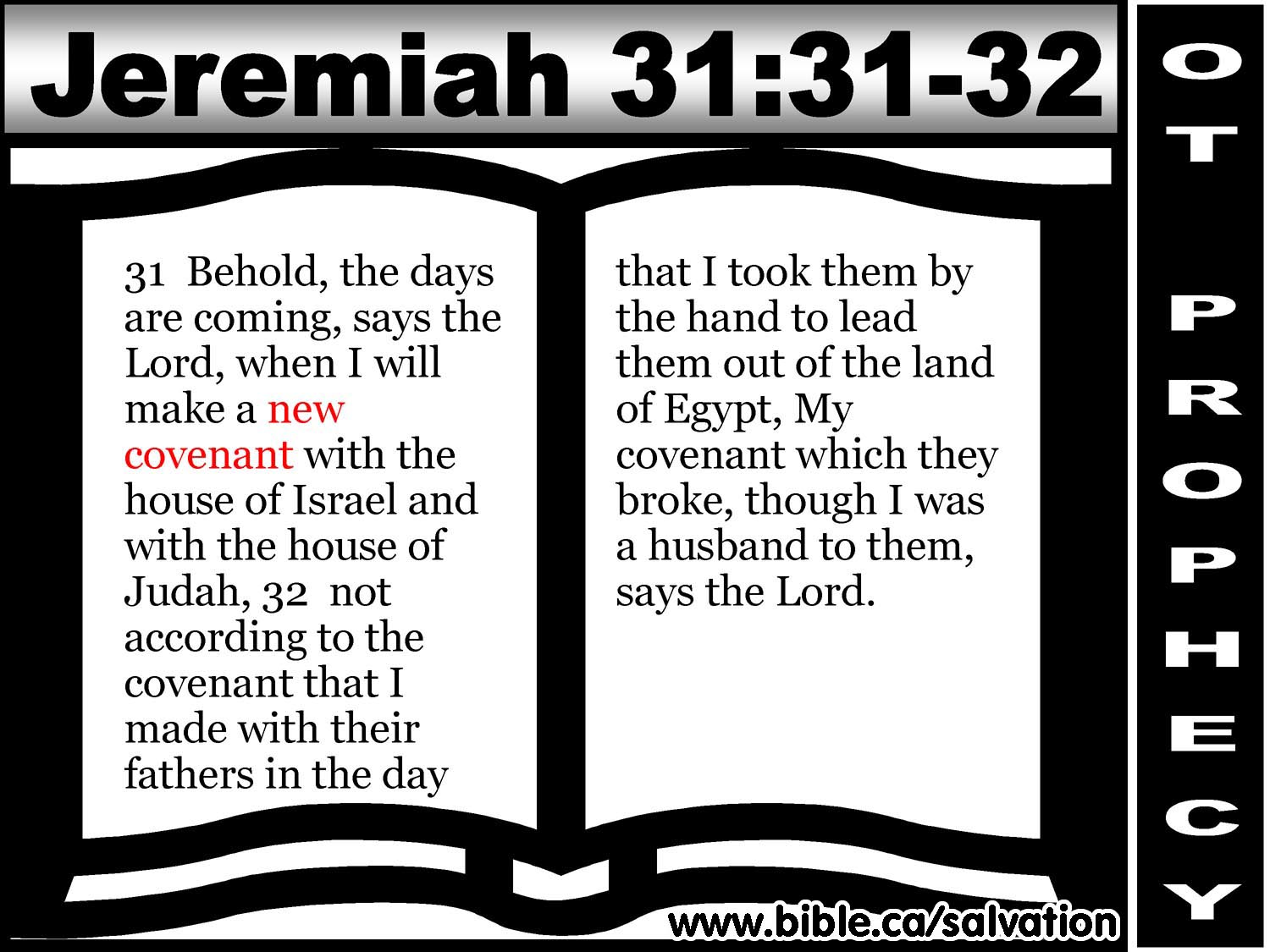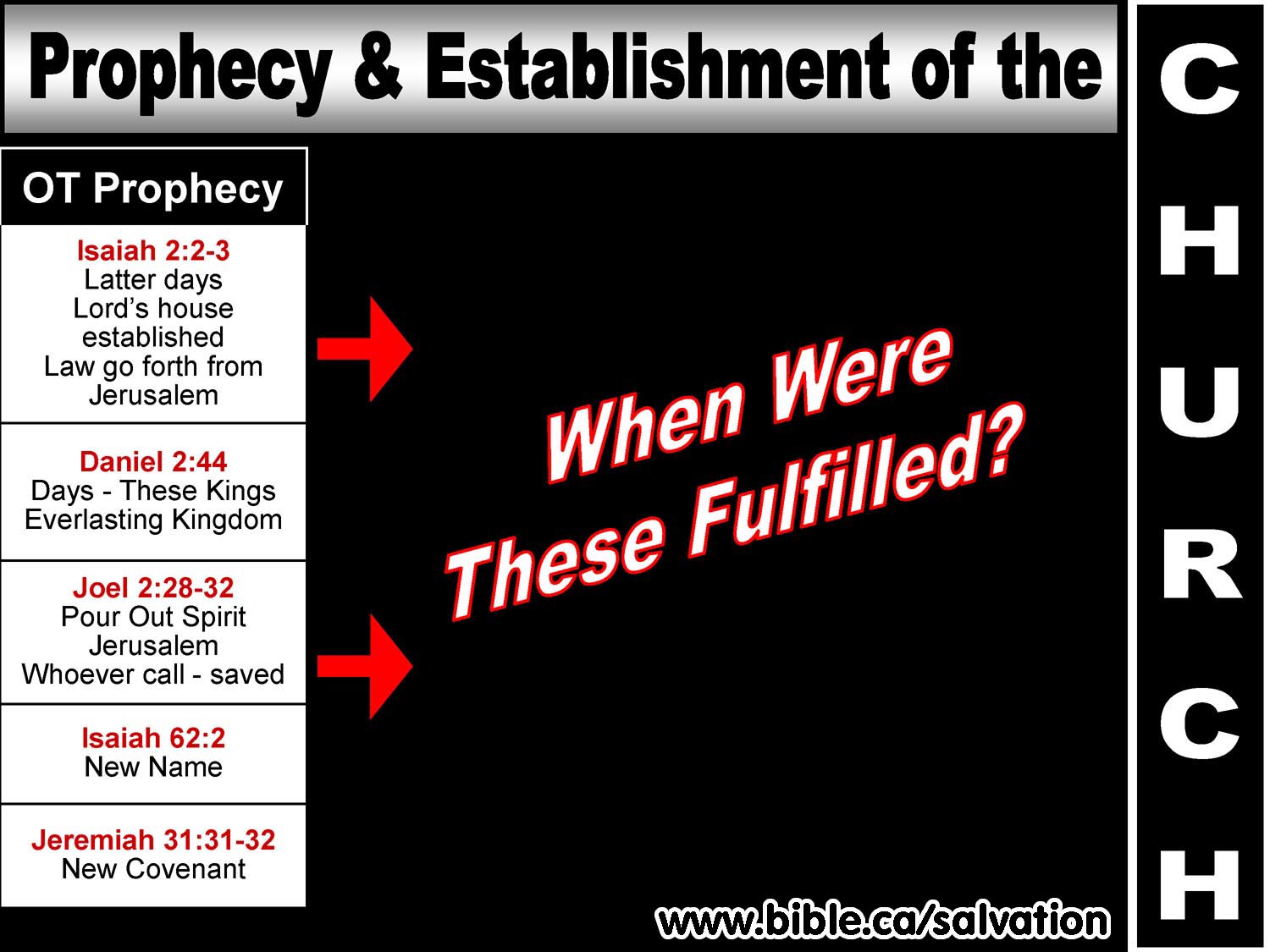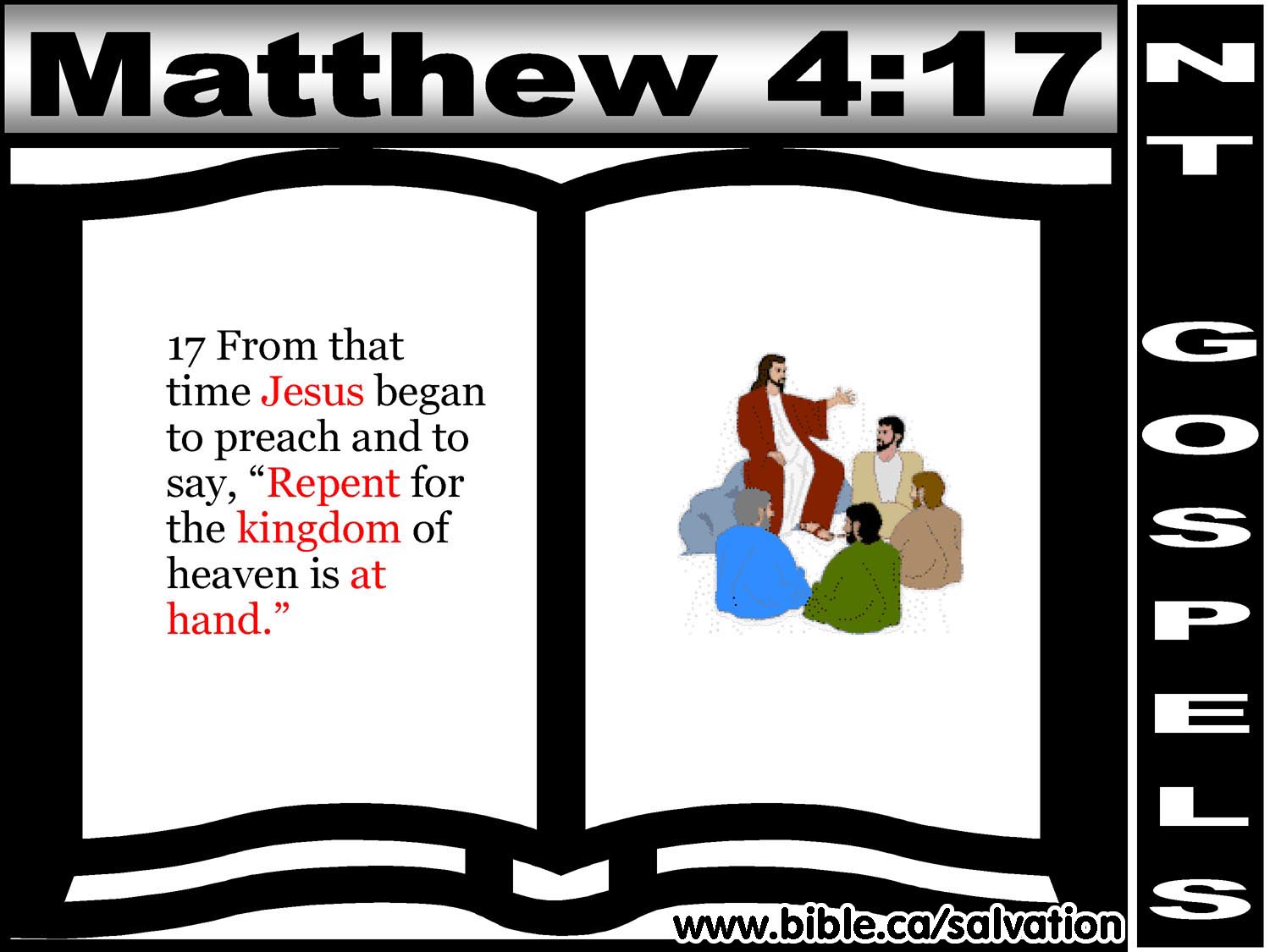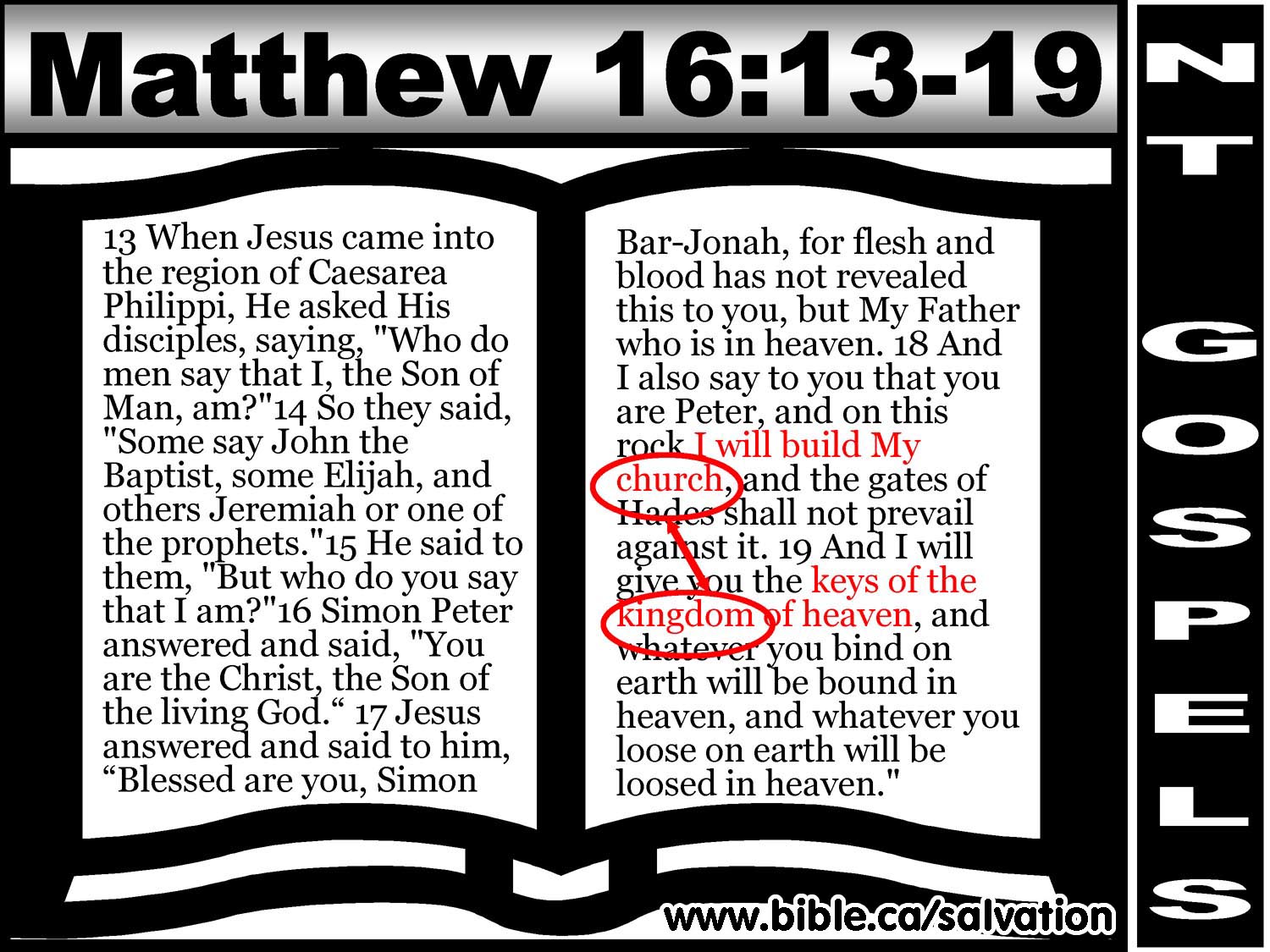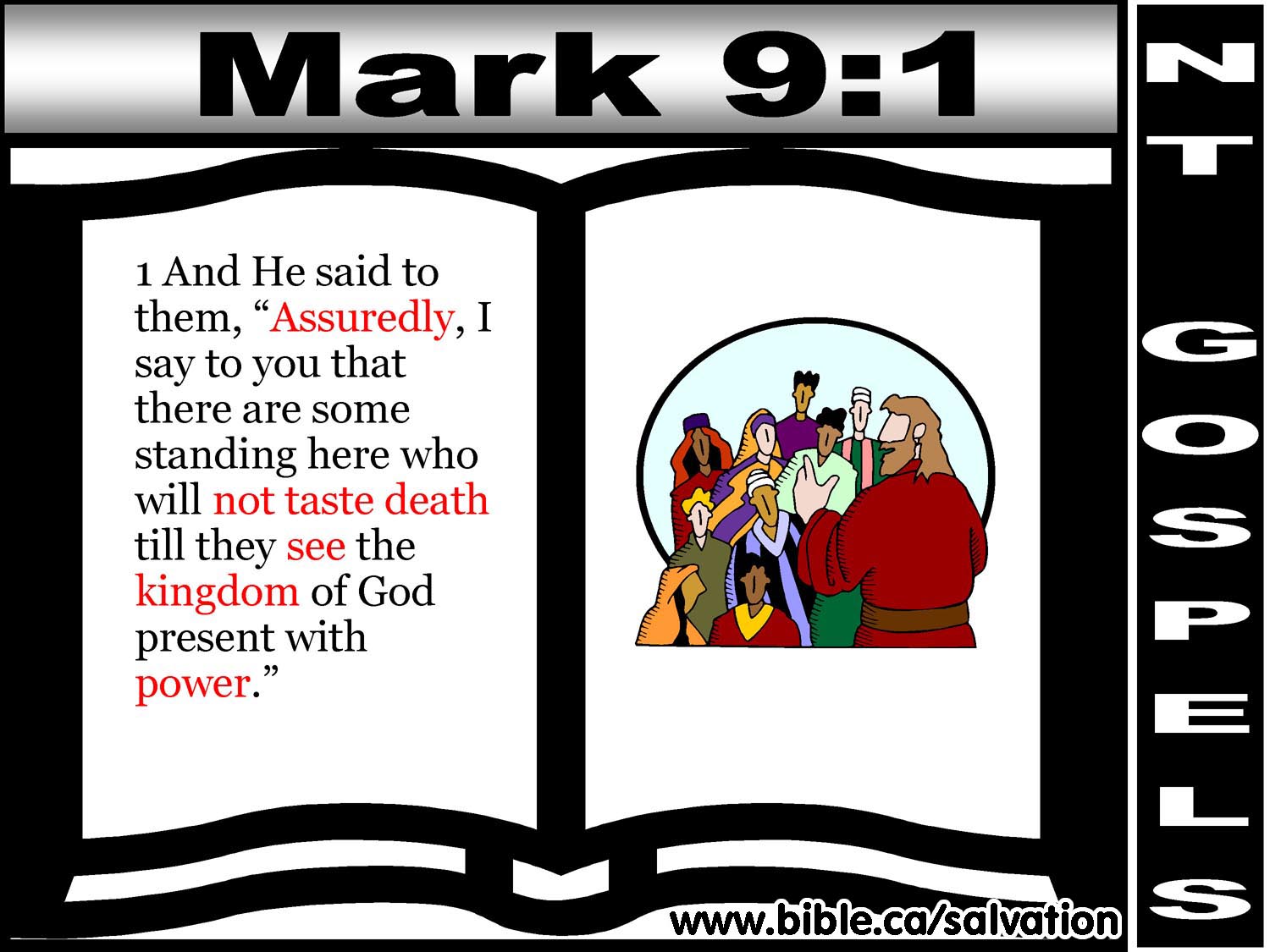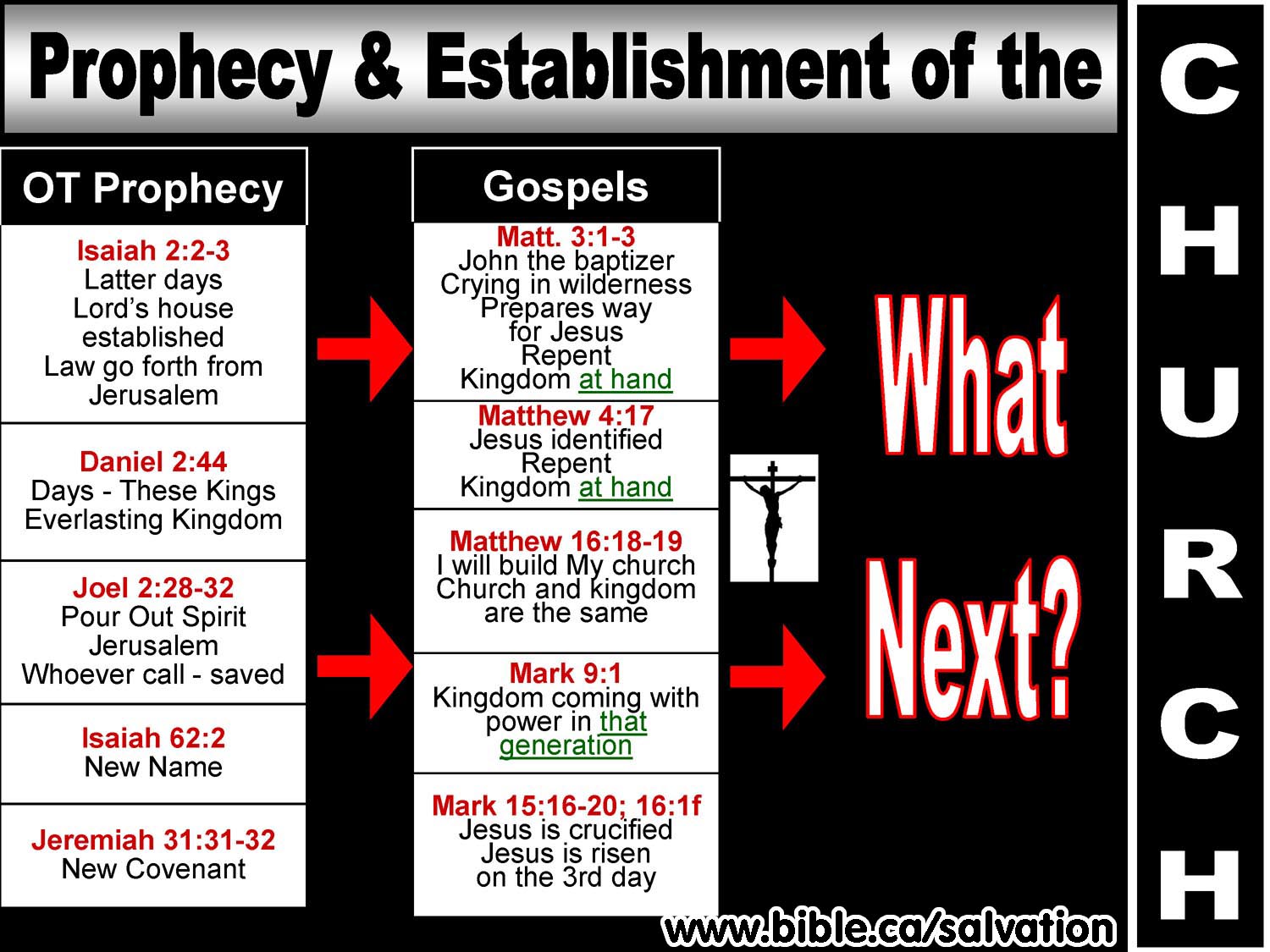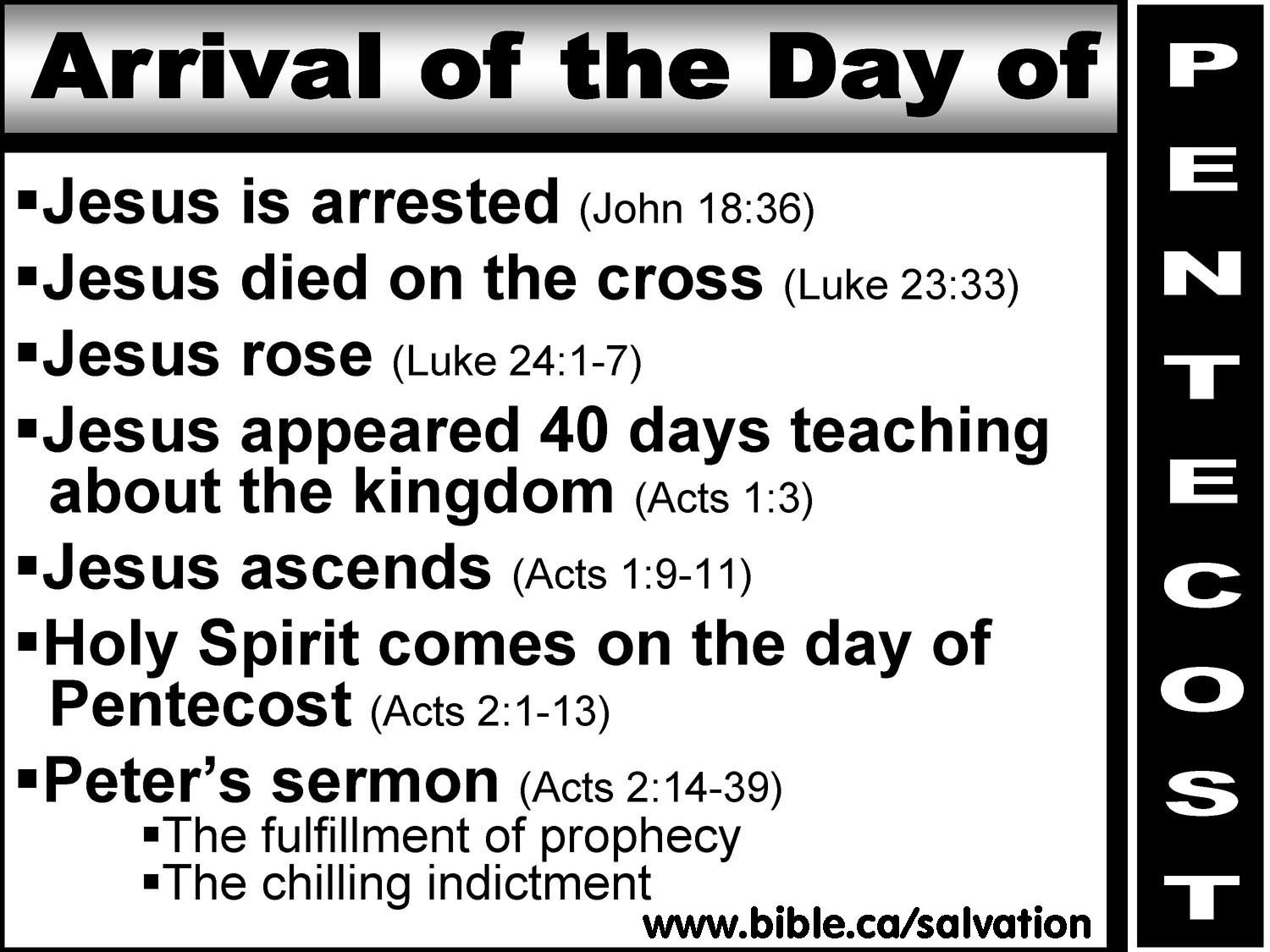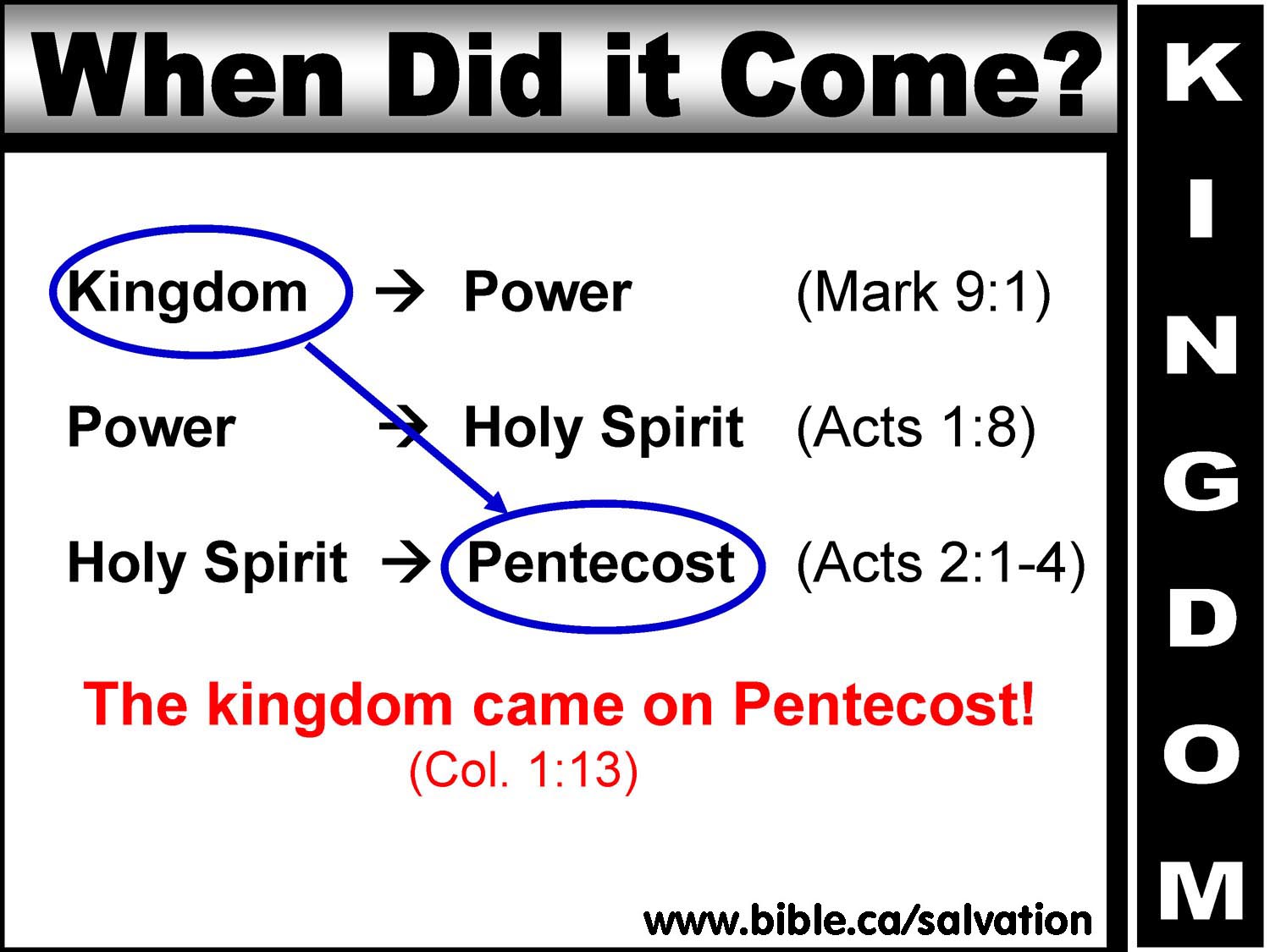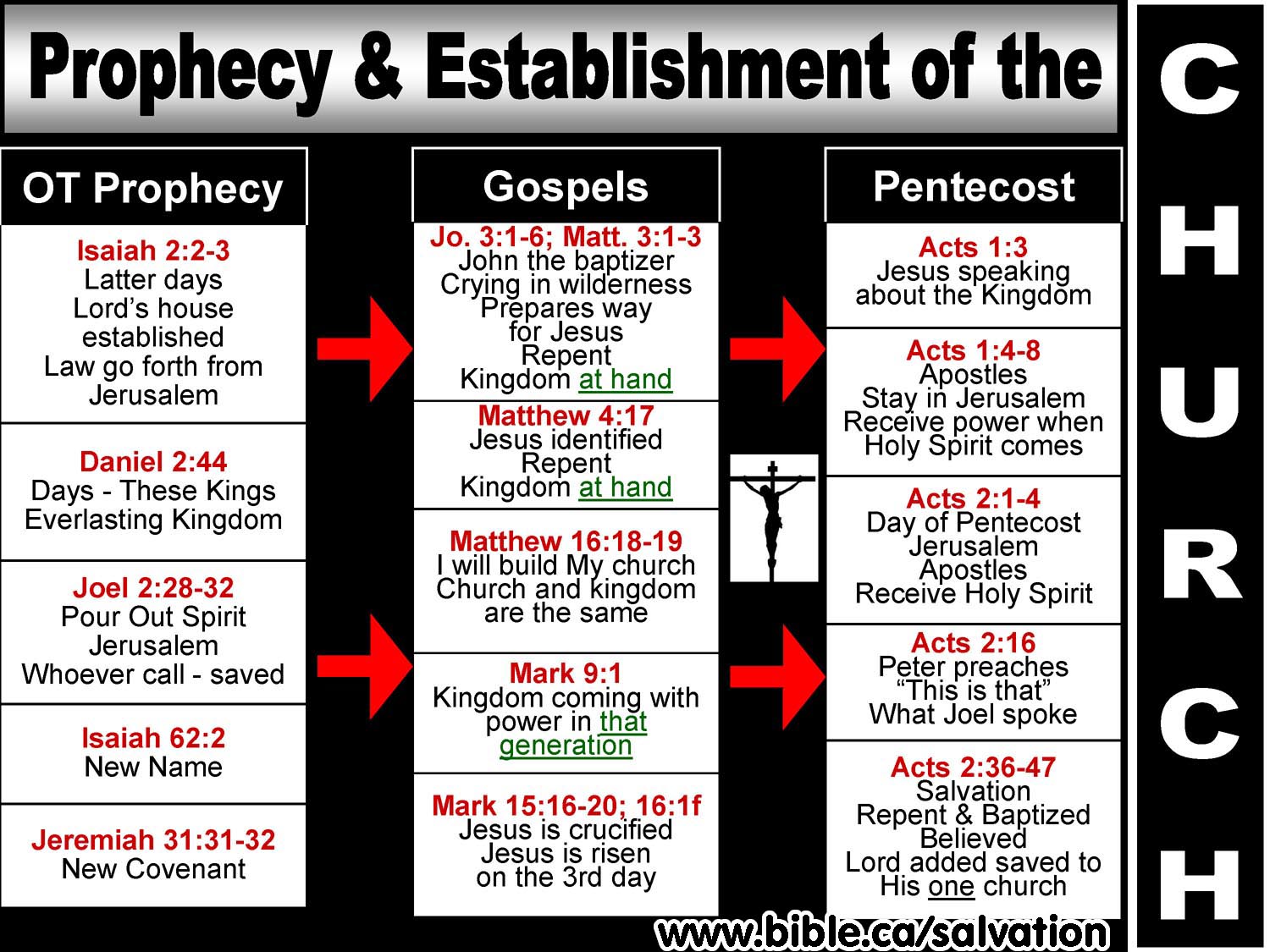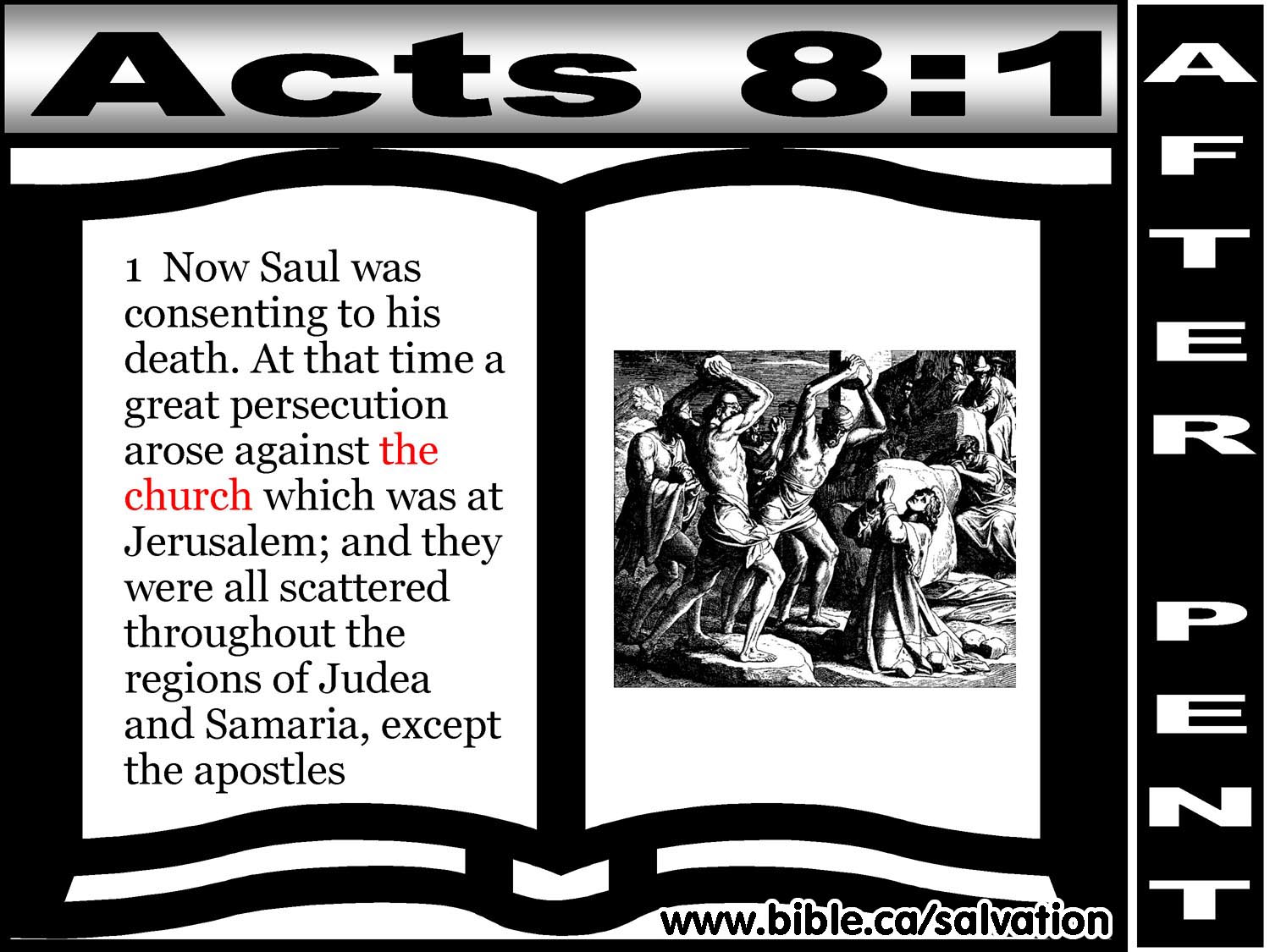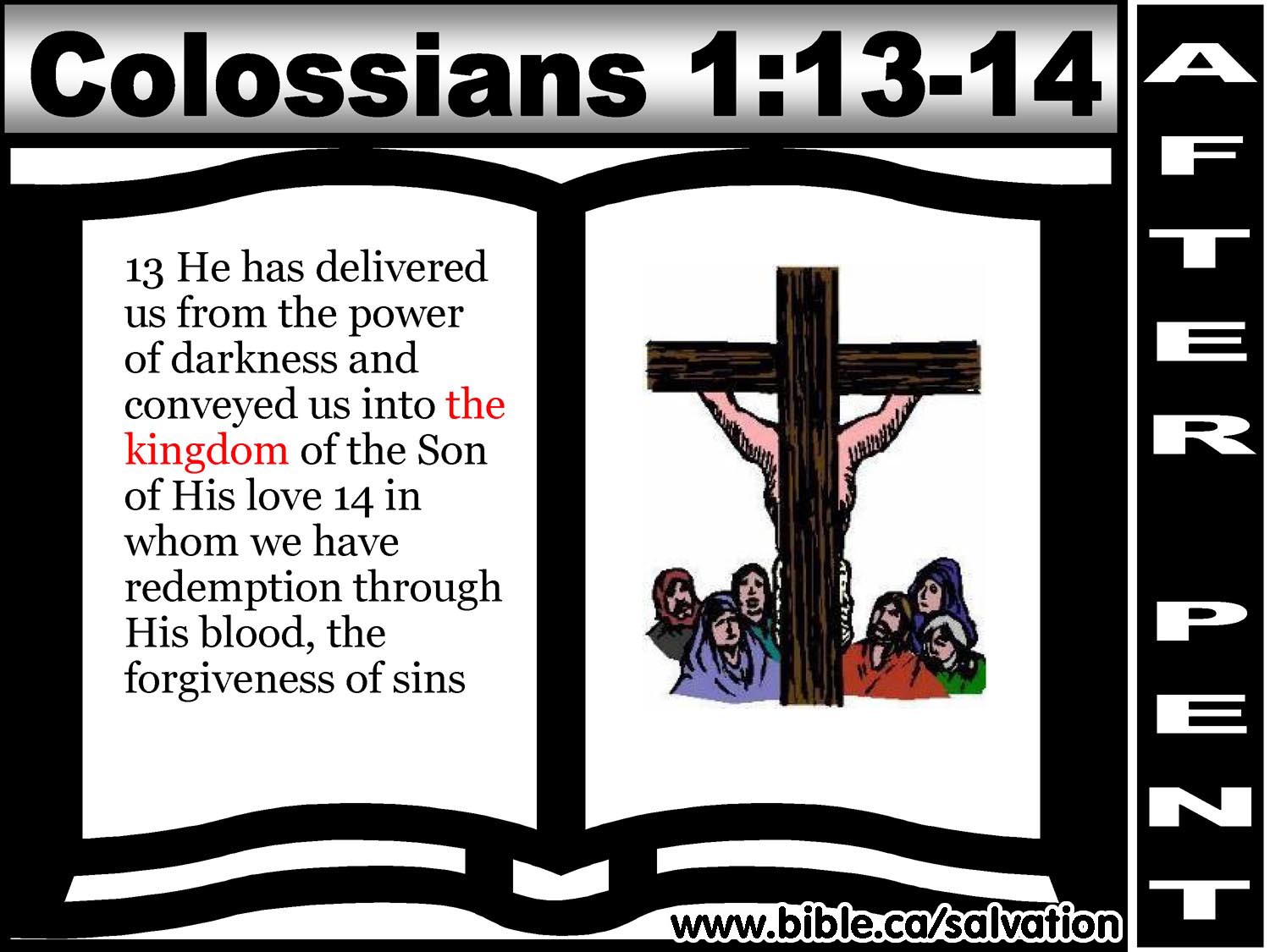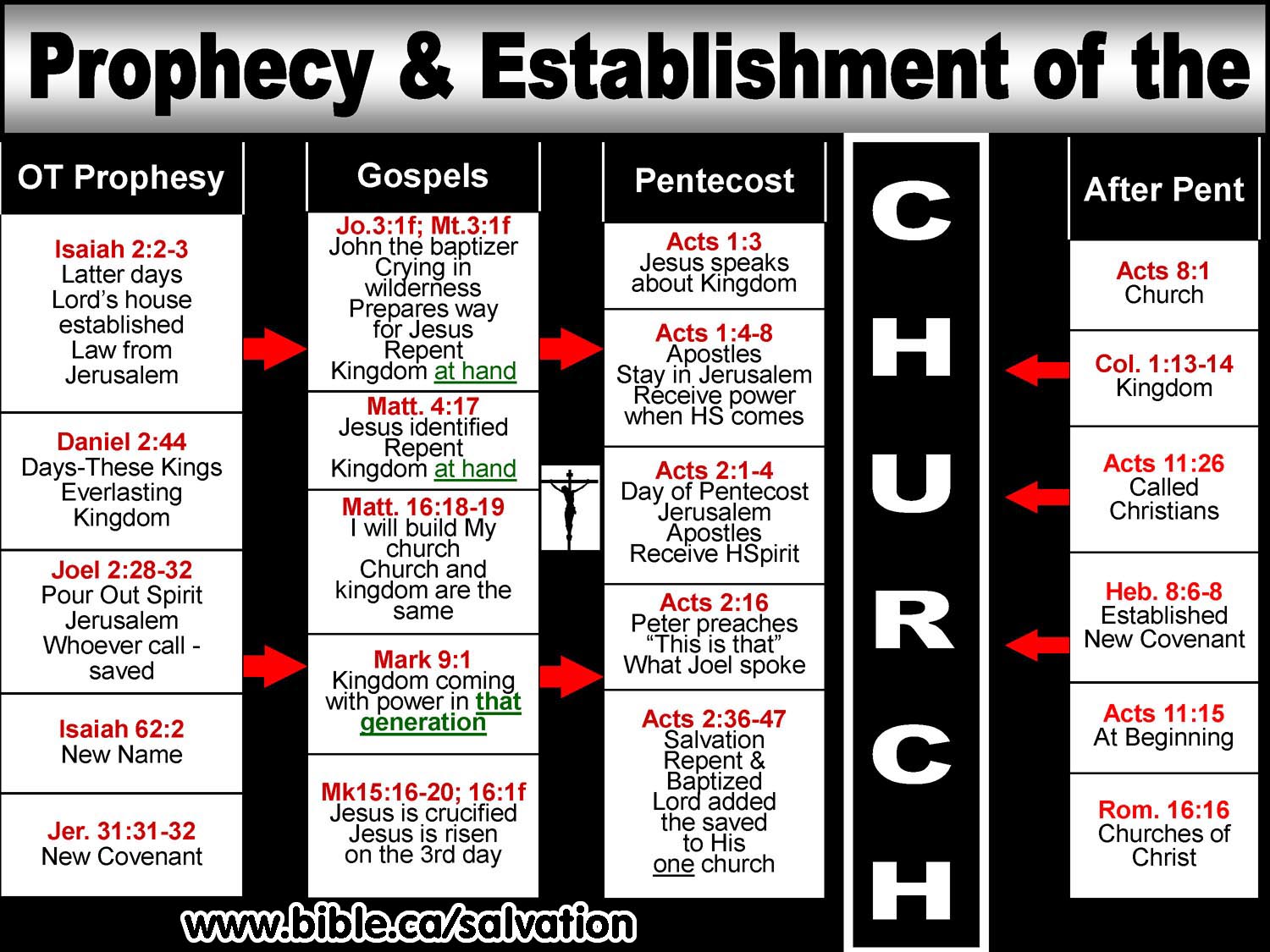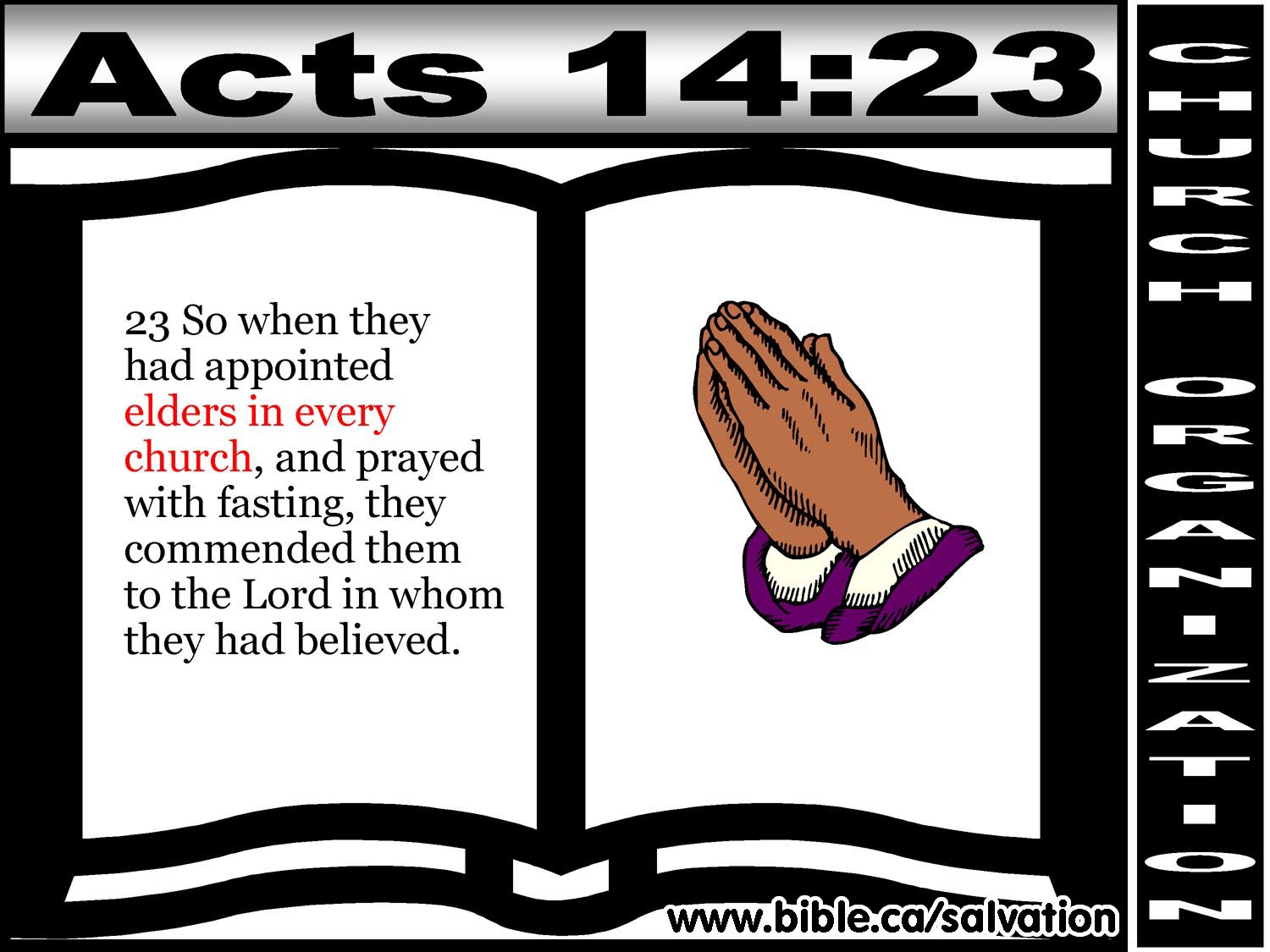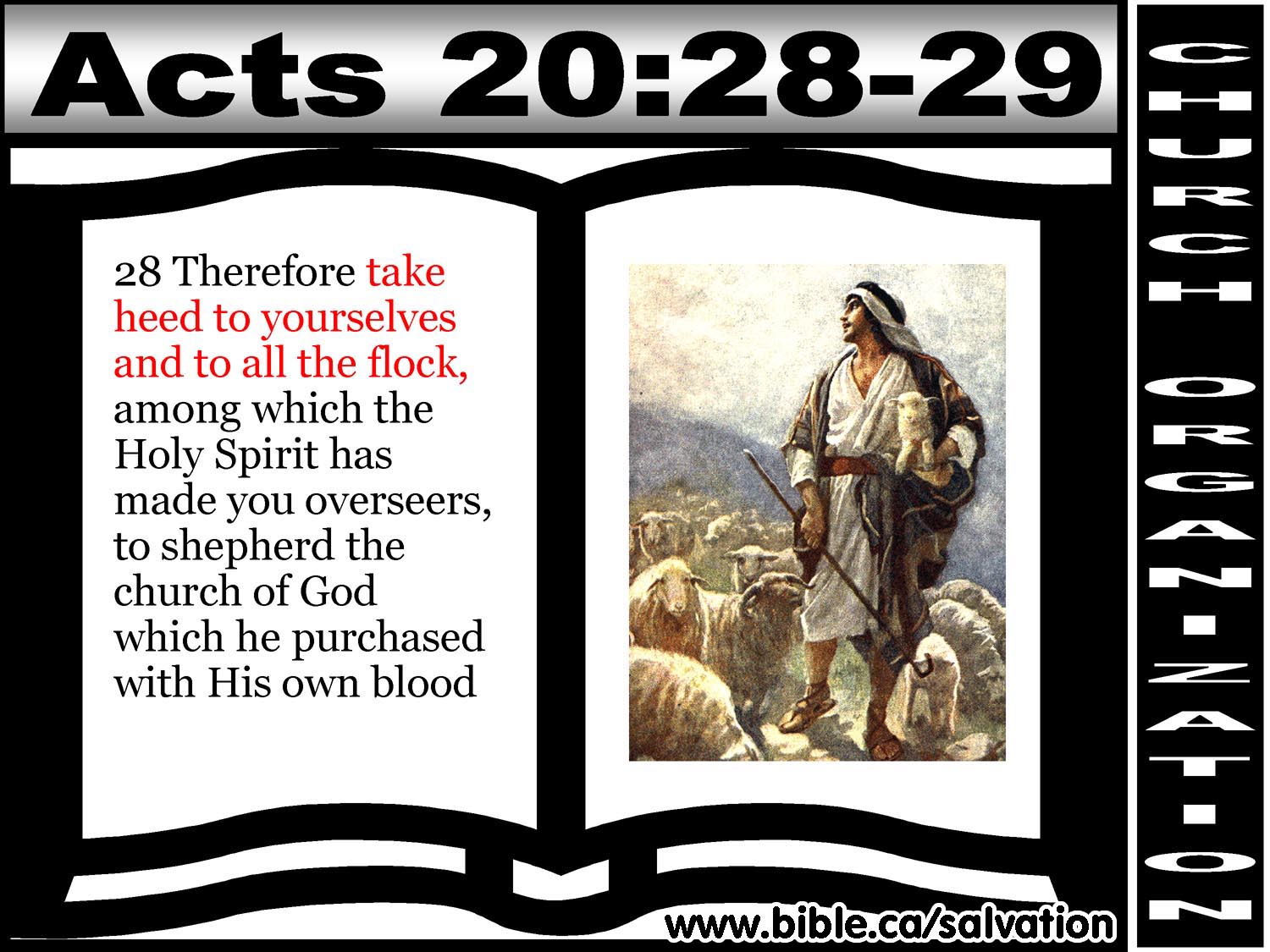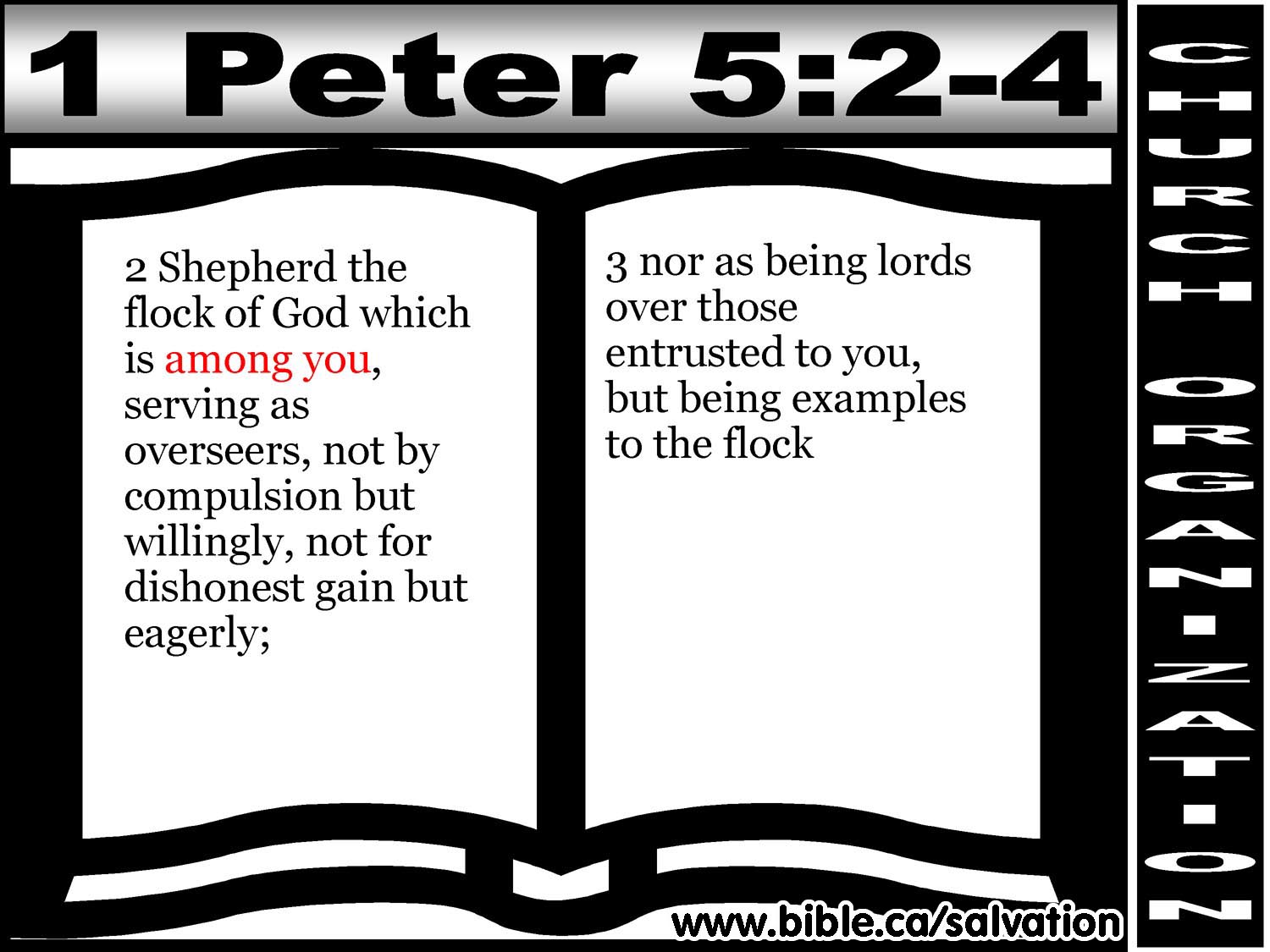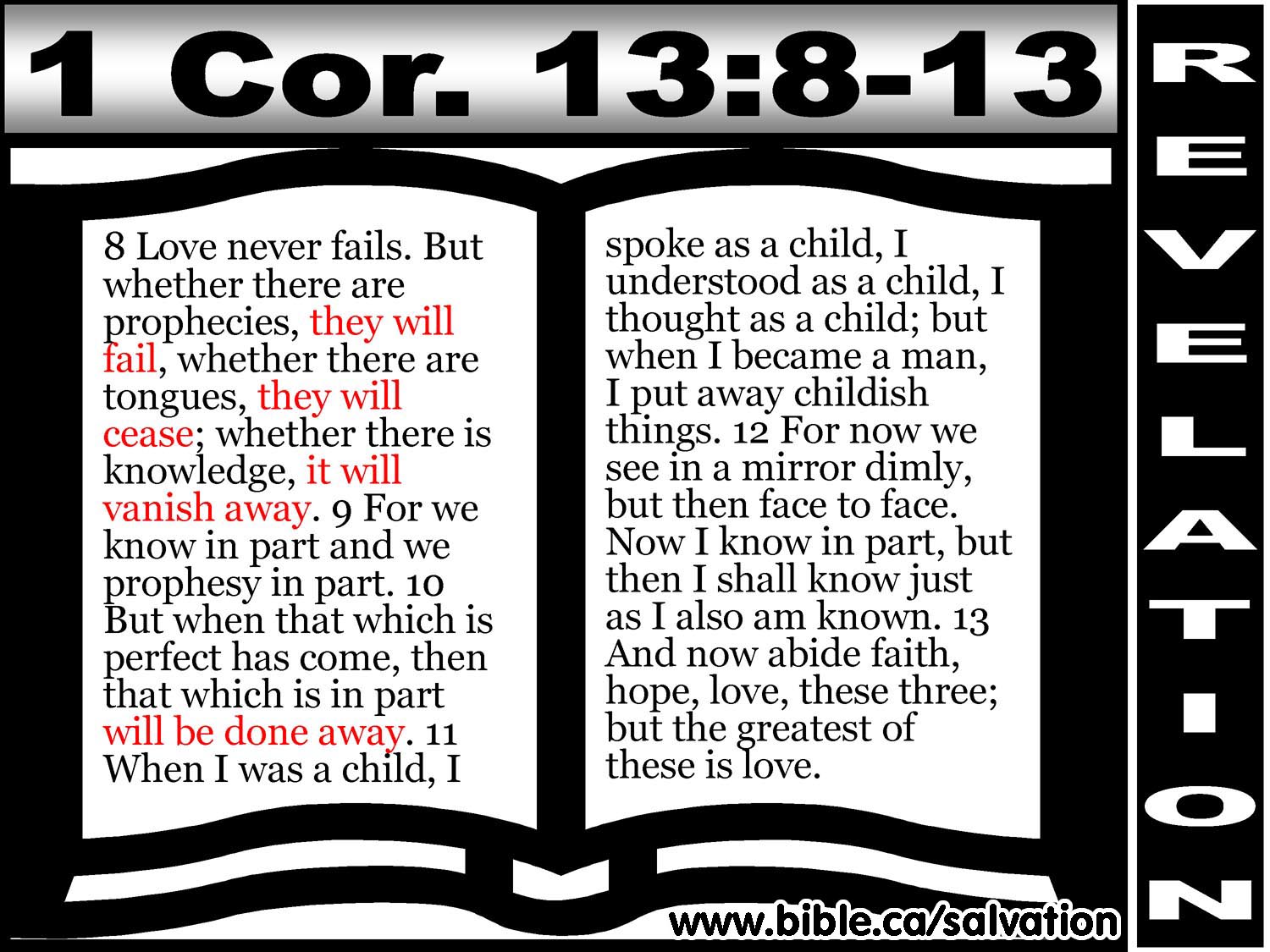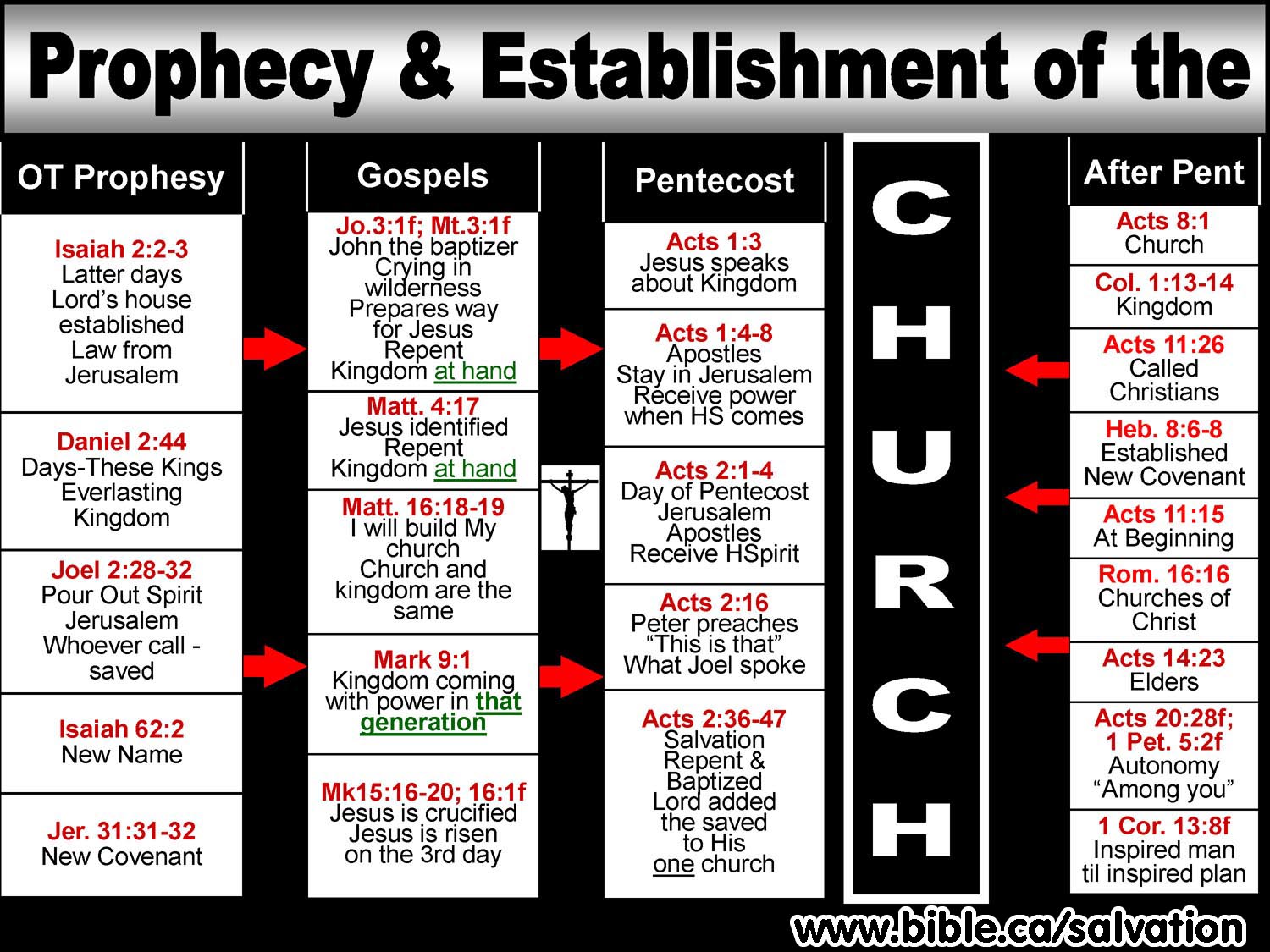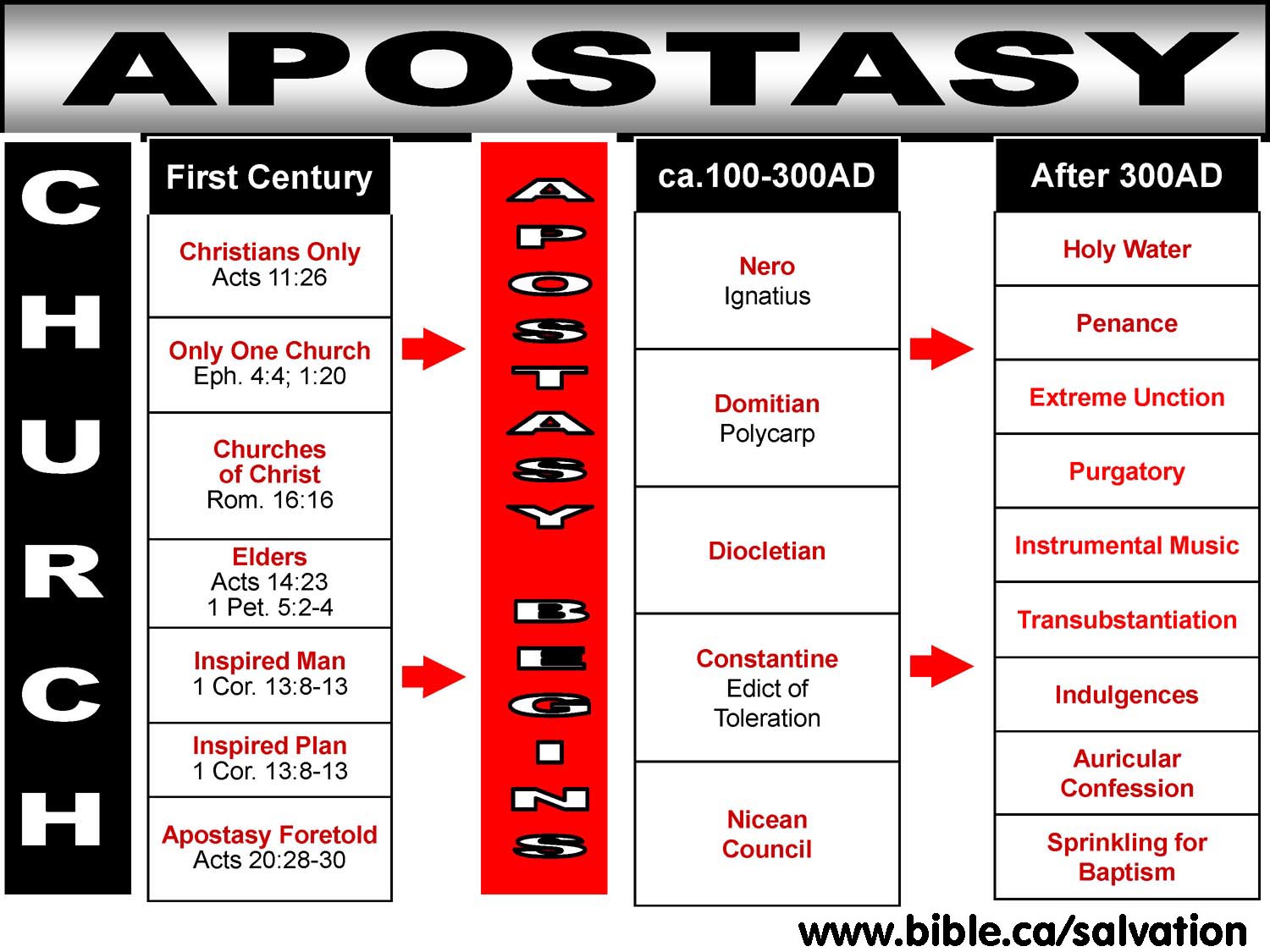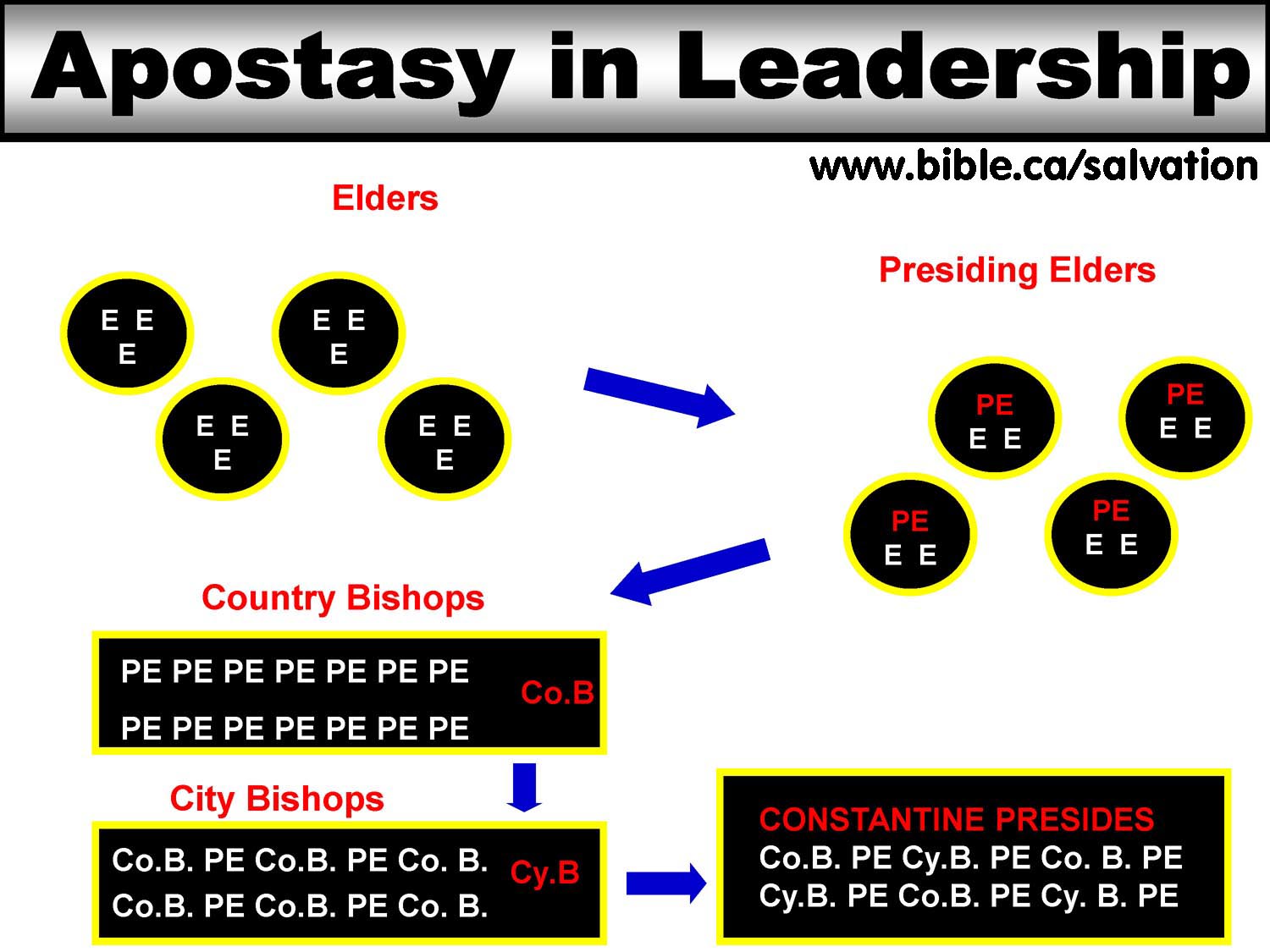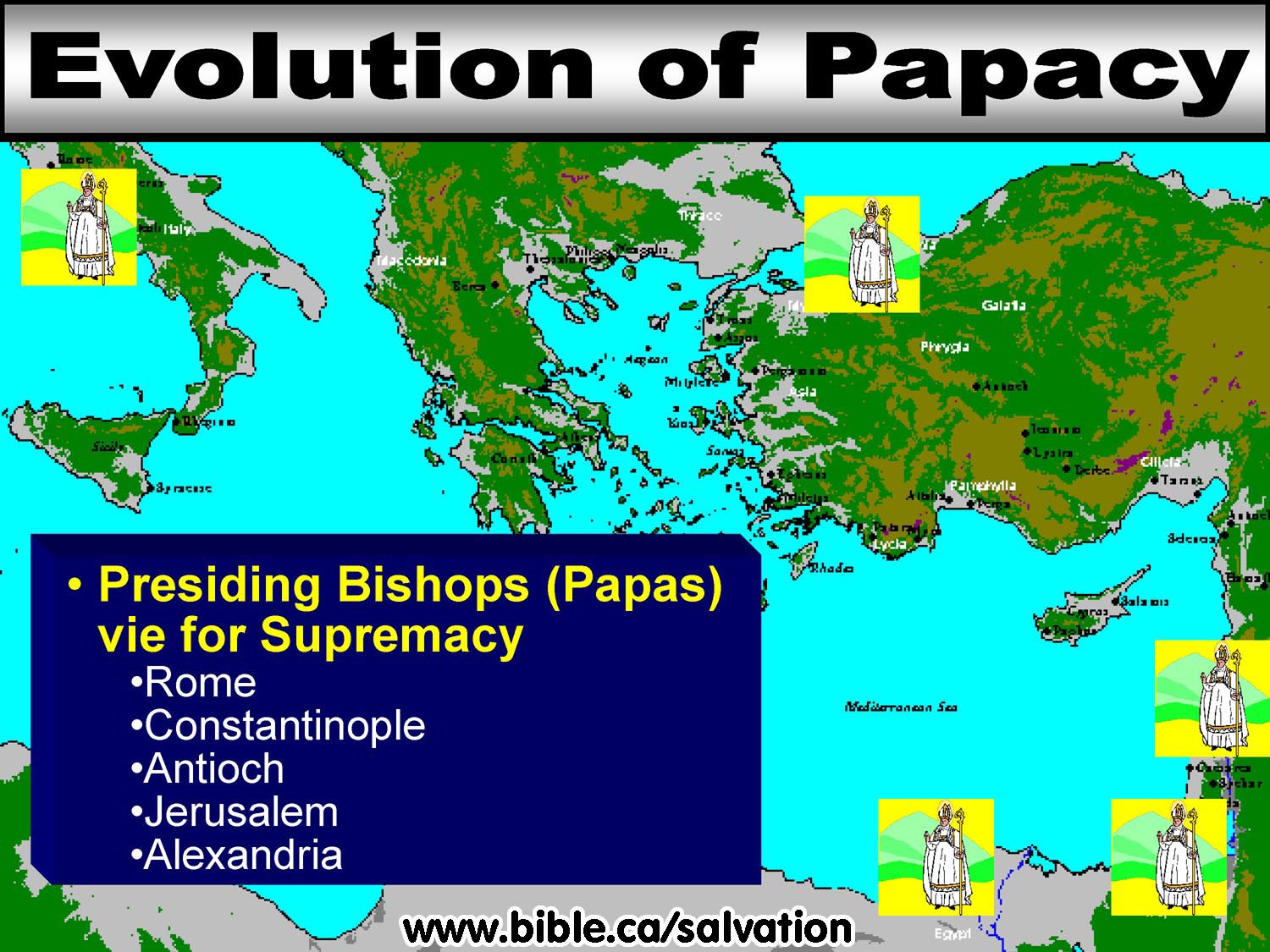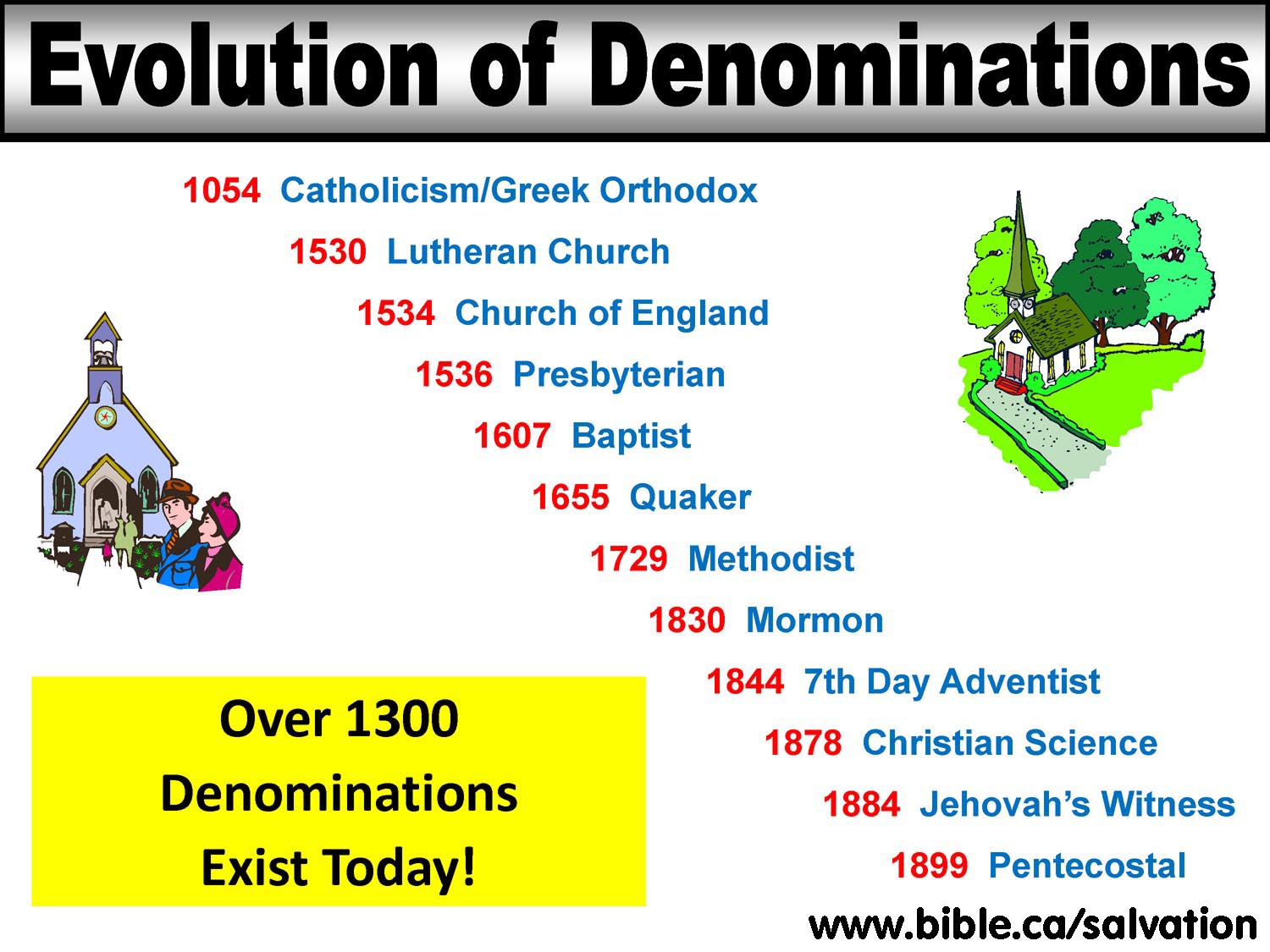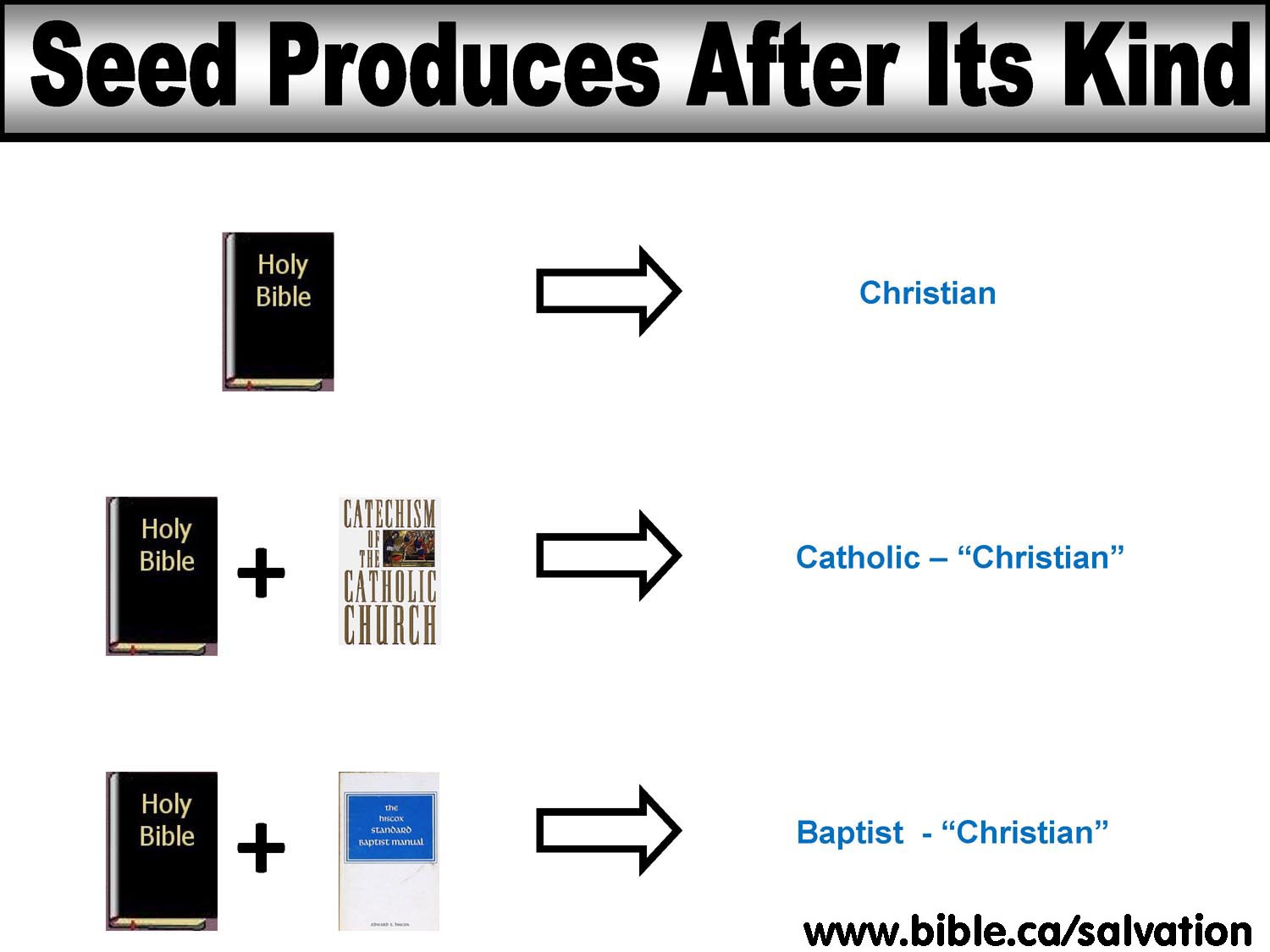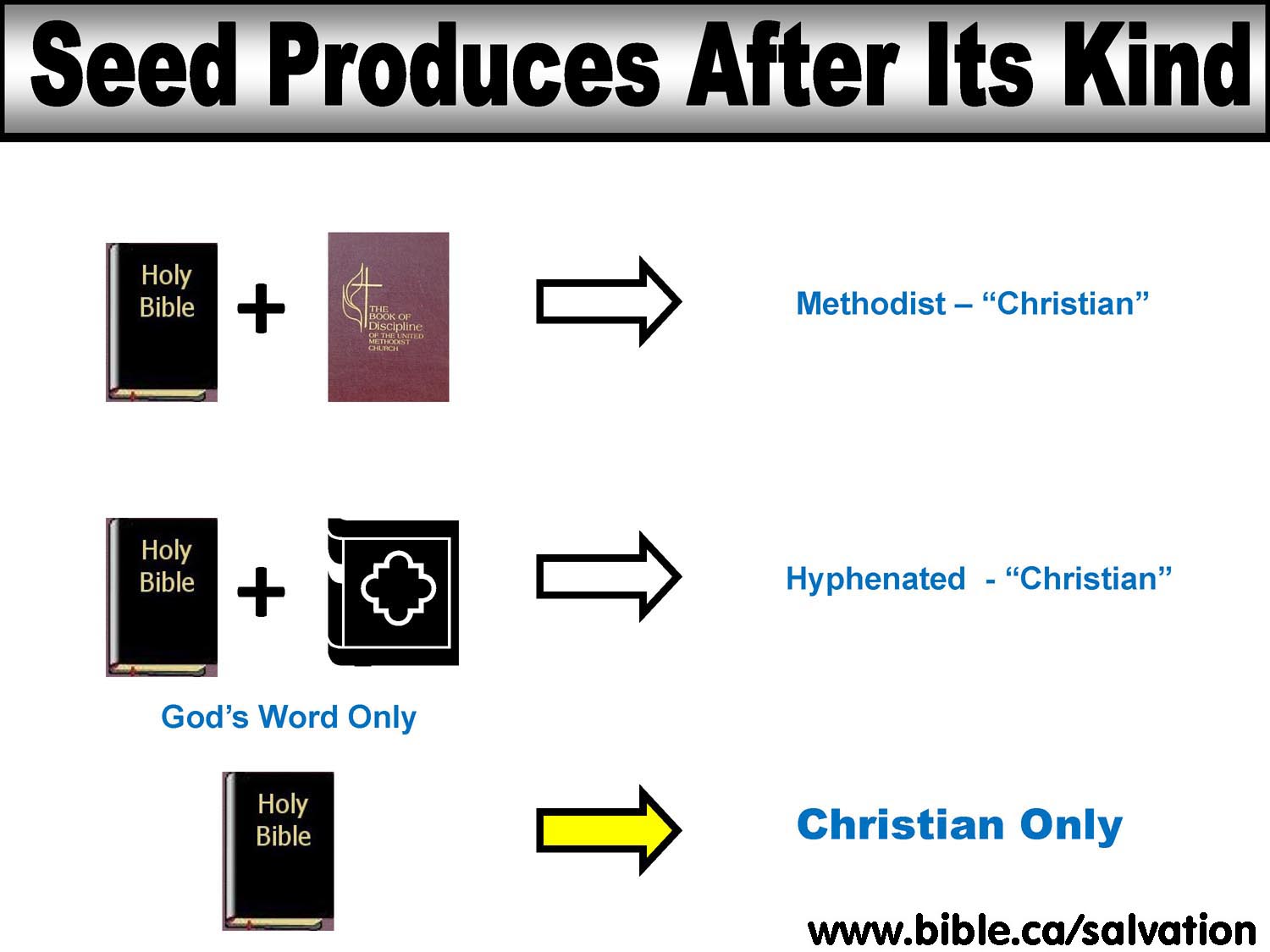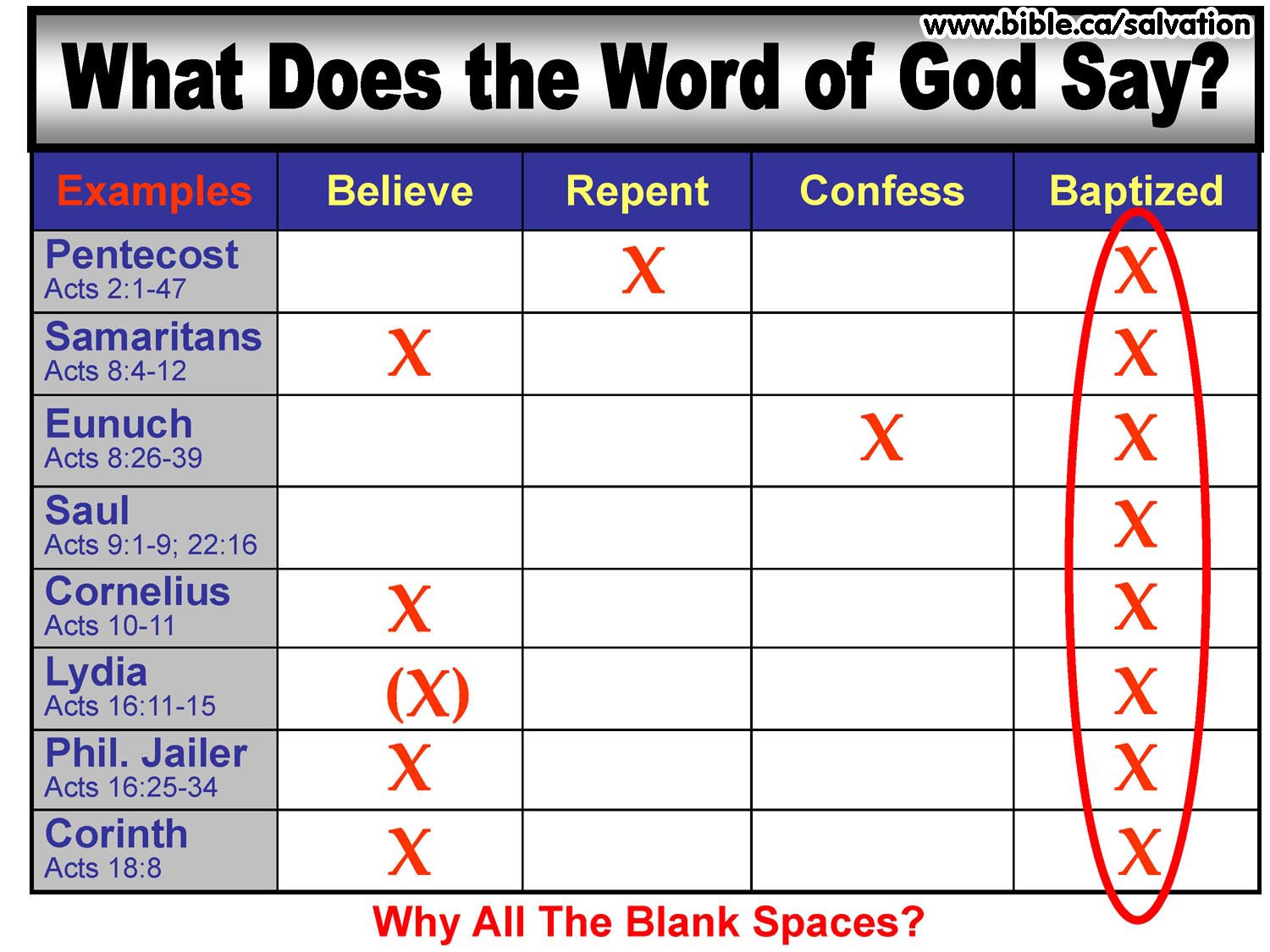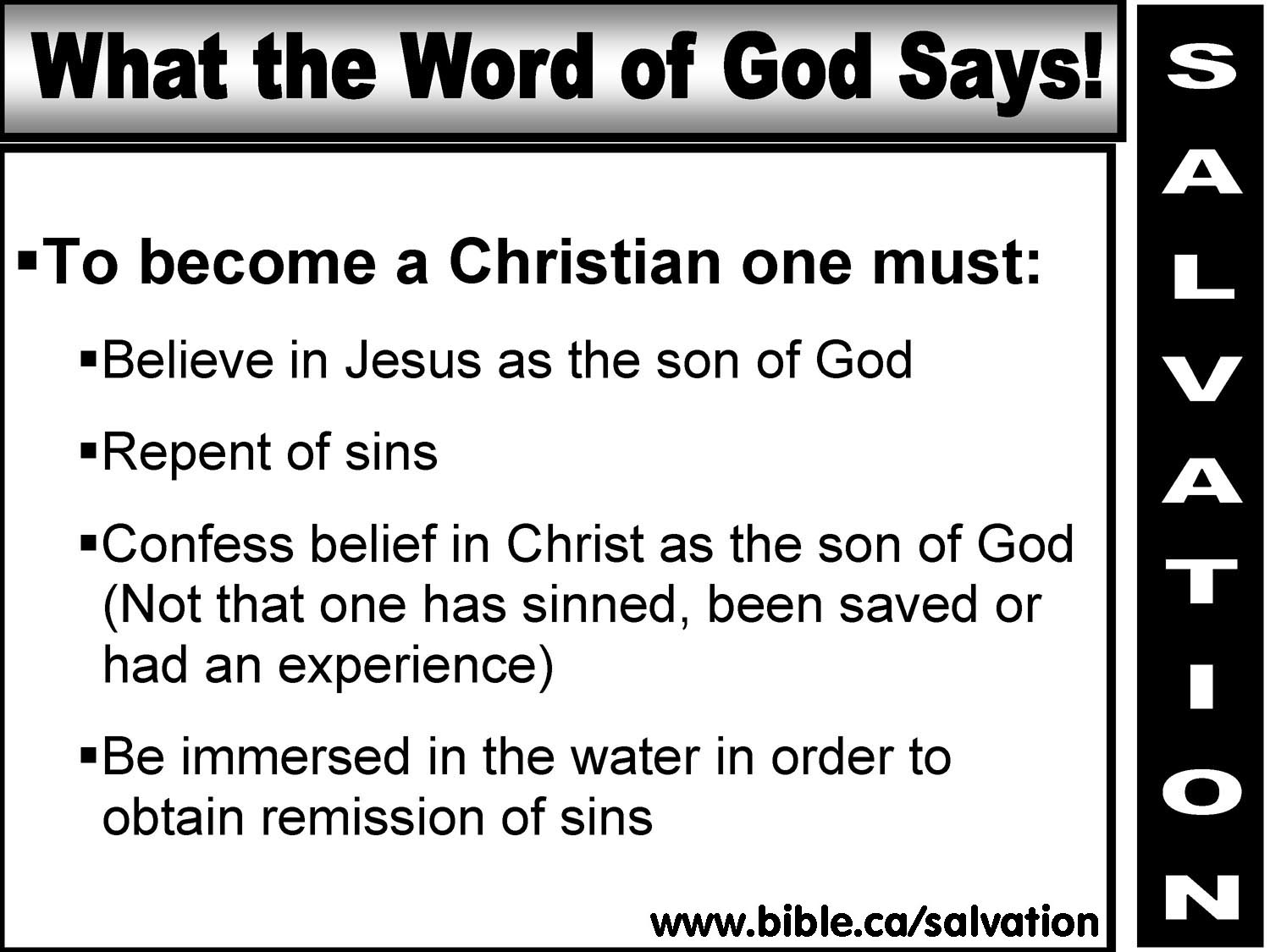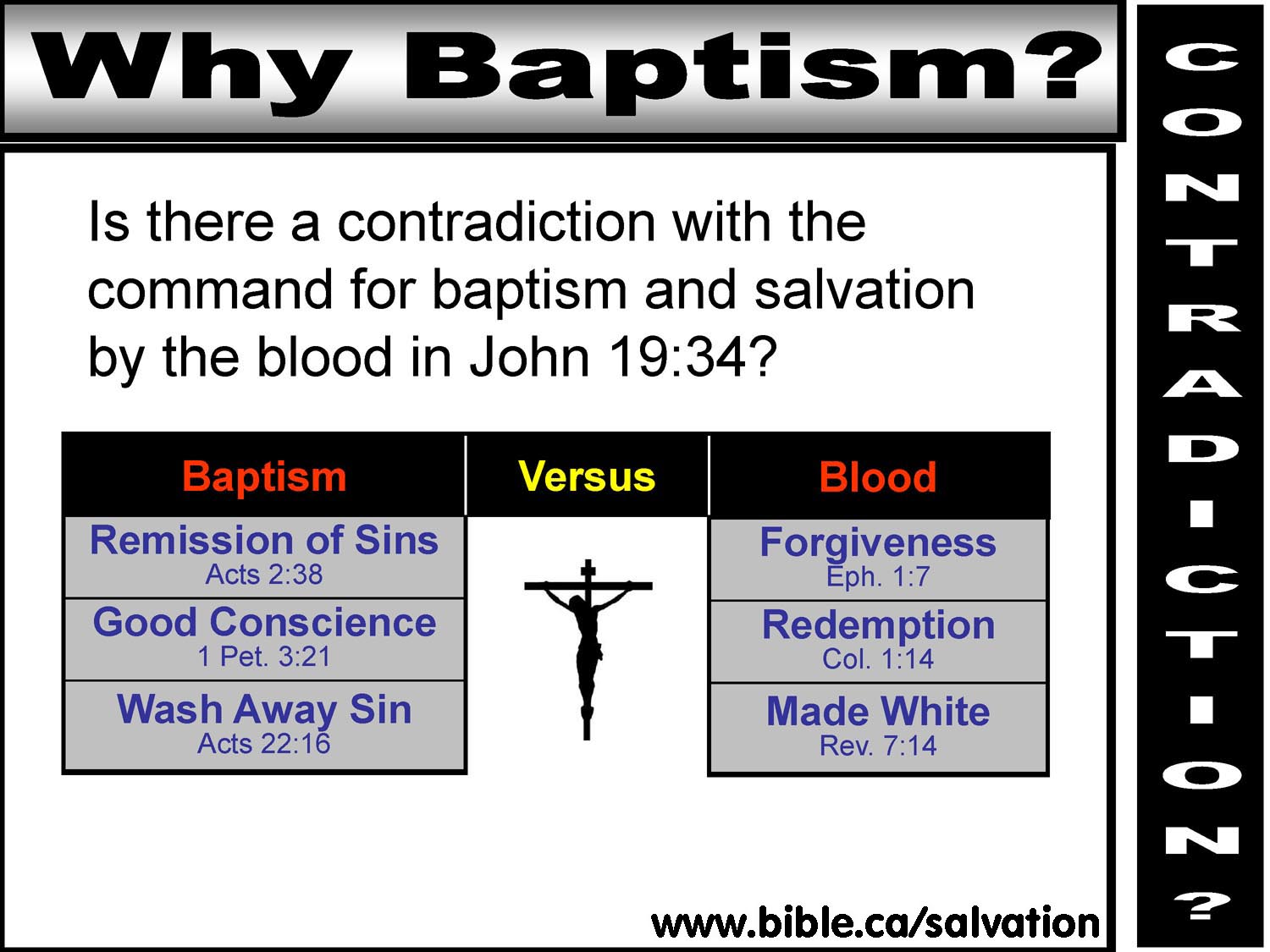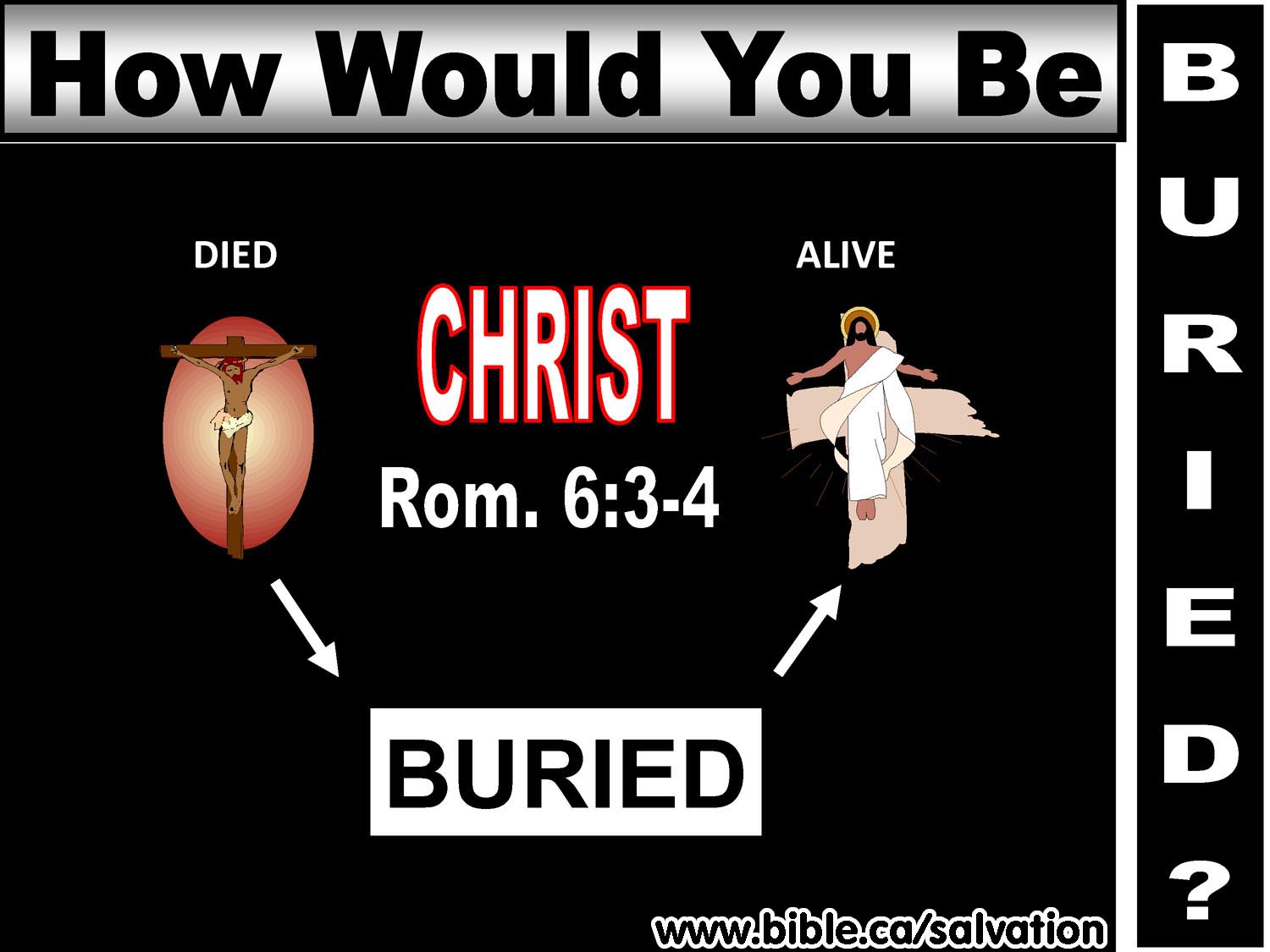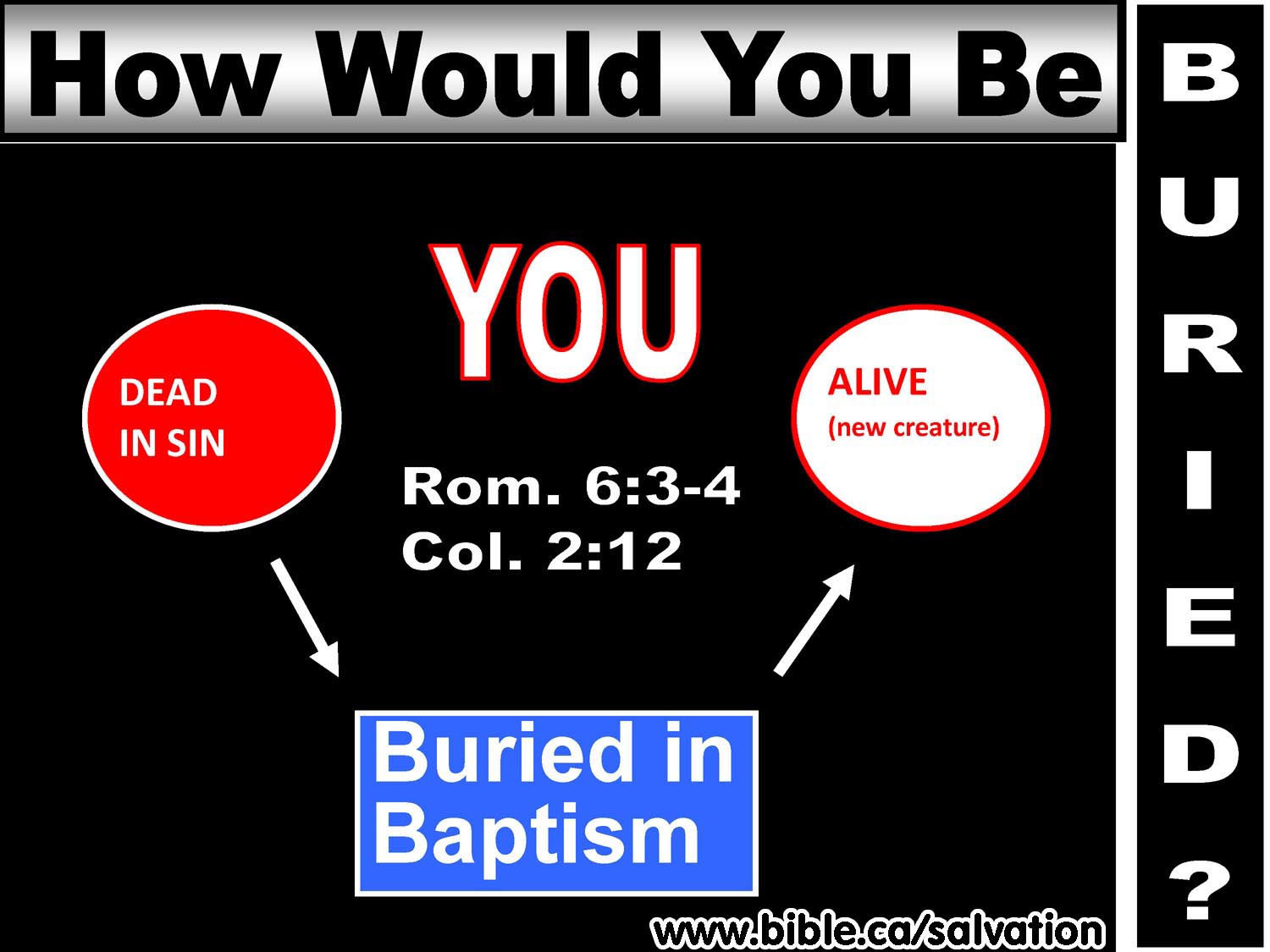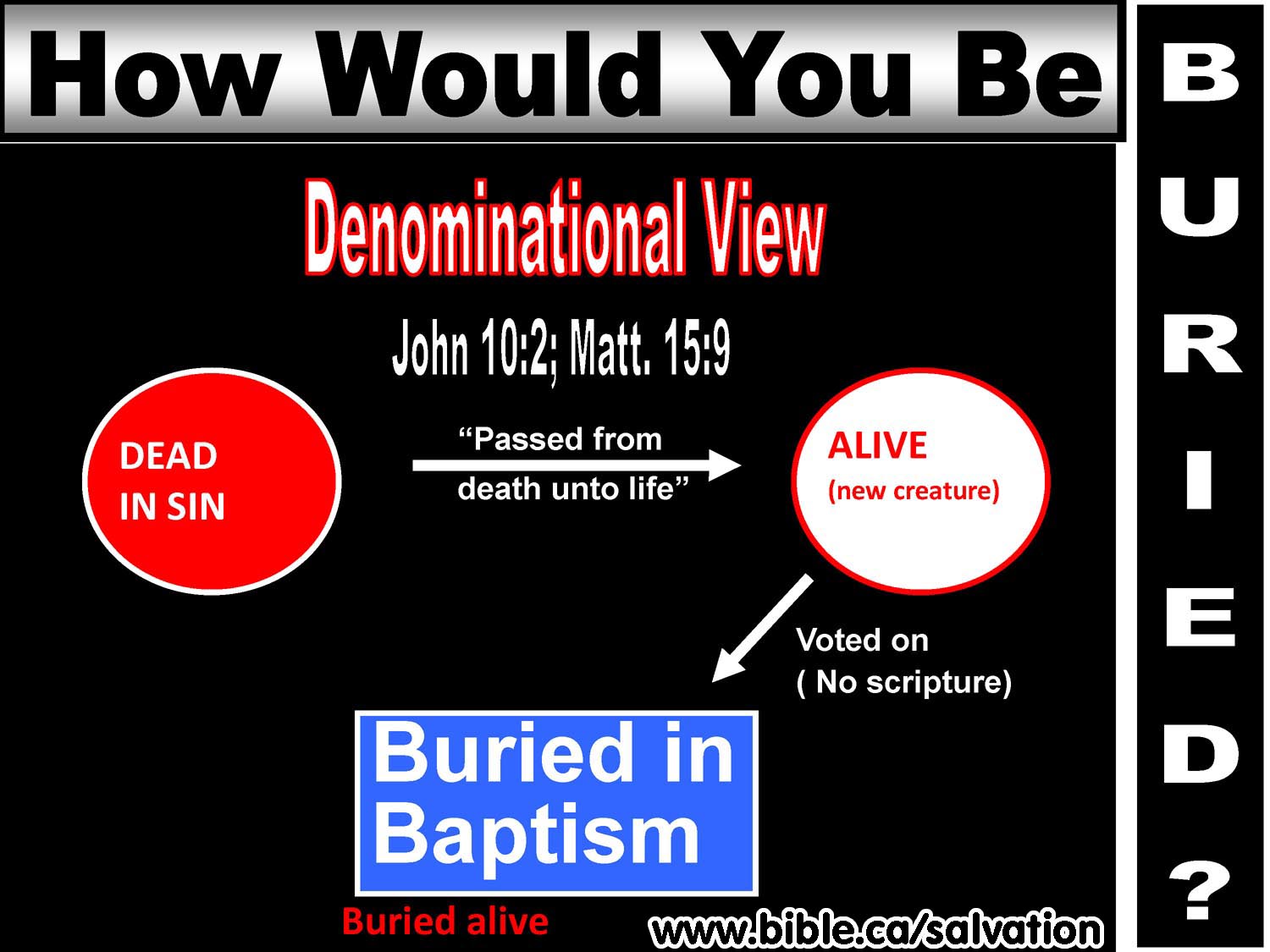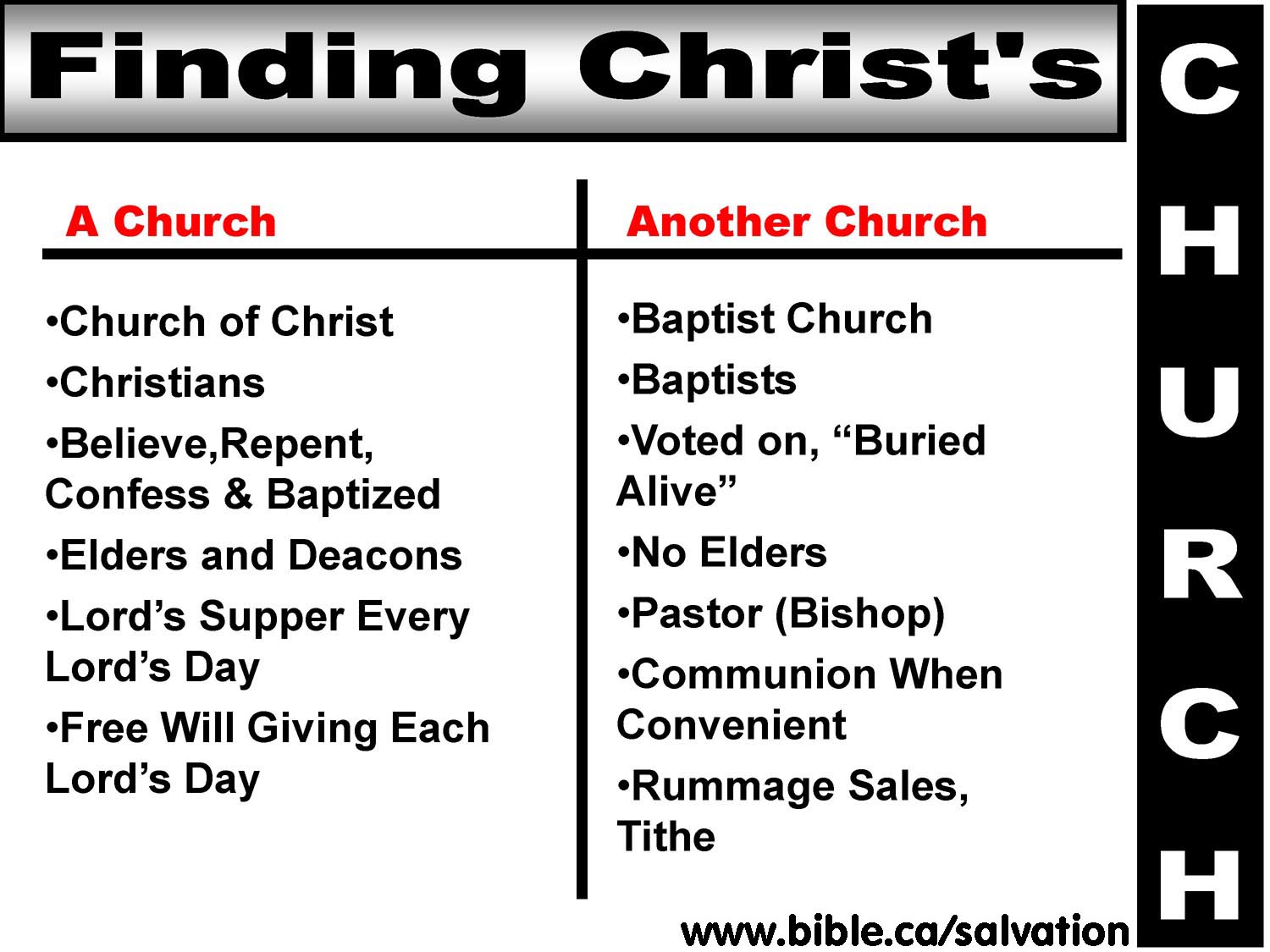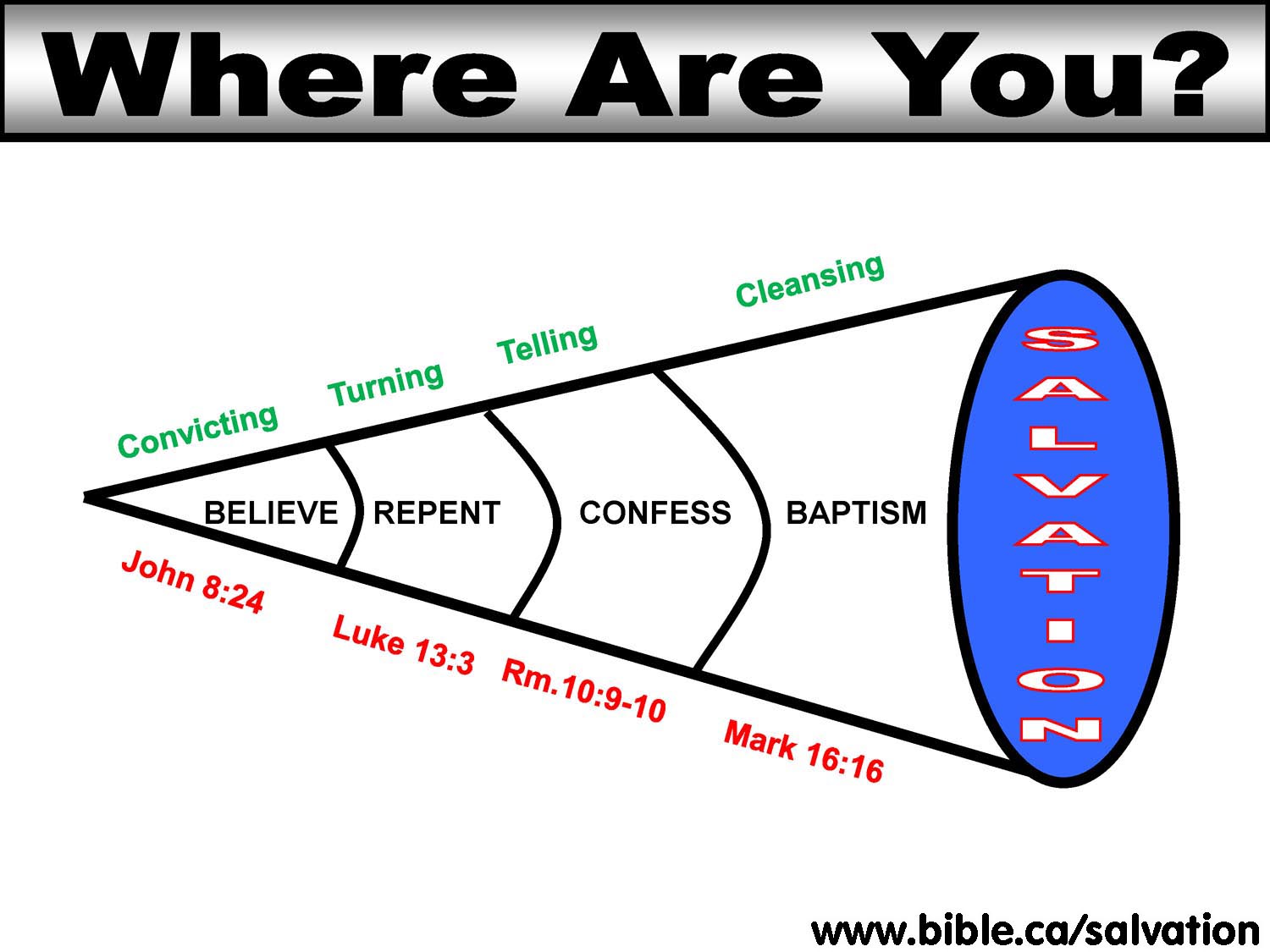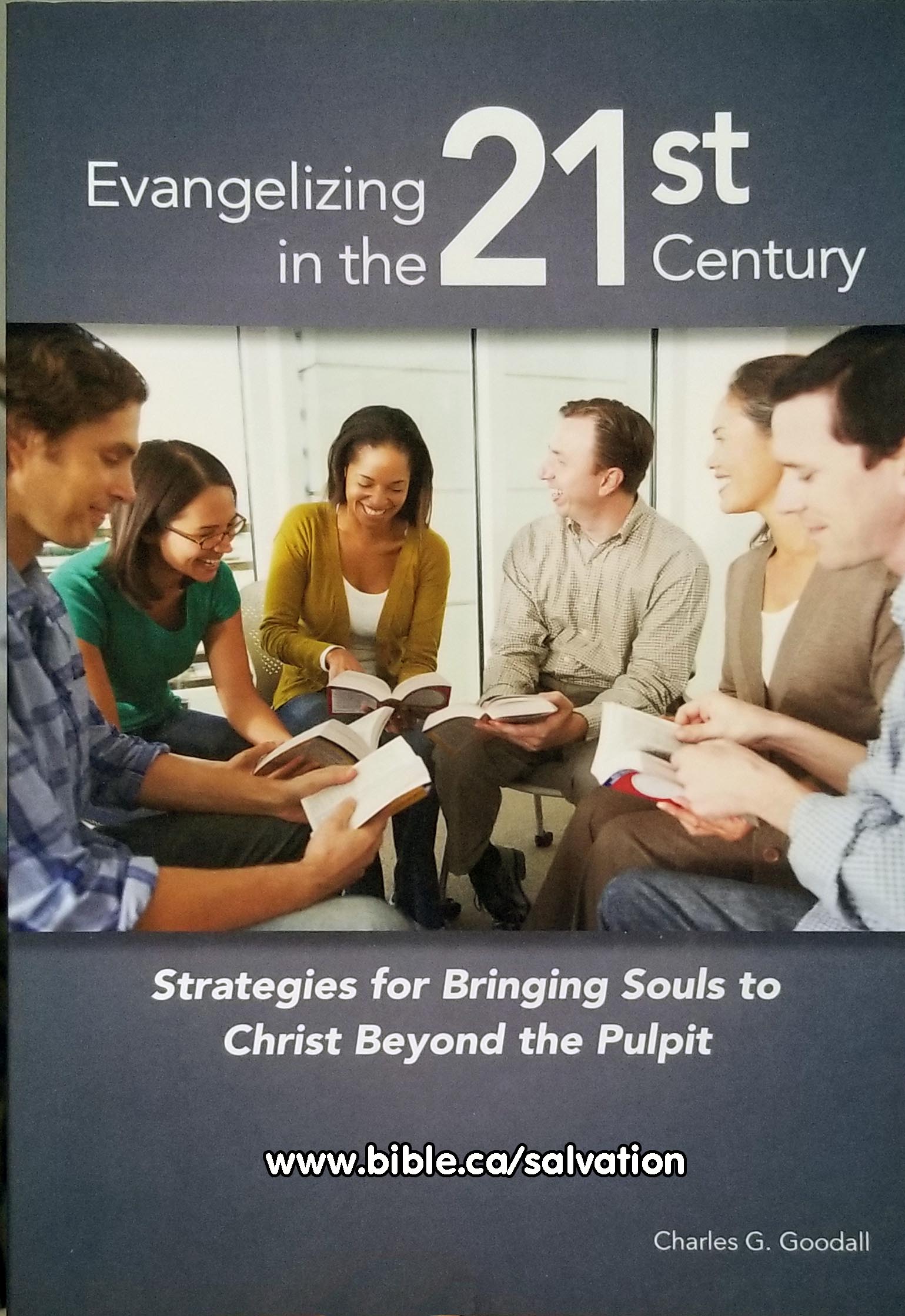How to be saved!
In the Same Hour of the Night
Let Charles G. Goodall lead you to salvation in Jesus in one lesson
Download the Powerpoint presentation

The Lesson Itself
Our objective in this lesson is to deal with two basic questions: (1) What did the prophets foresee regarding the church and the kingdom and (2) when was the church and the kingdom established? To begin our study, we will examine several Old Testament passages, beginning with Isaiah 2:2-3.
|
Note that at some future time the Lord’s house will be established and the word will go forth from Jerusalem. Although the passage vaguely mentions a time frame of the “last days,” we are simply directed to look to the future |
||
|
Our second step brings us to a prophecy in Daniel 2:44: Here we learn that at some future time an everlasting kingdom will be established, but again we are pointed to the future with few details about its fulfillment. |
||
|
The prophet Joel teases us with a few more details in Joel 2:28, 32. At some time to come the spirit is to be poured out in Jerusalem. At that time a tiny remnant of God’s people will be saved.
Still, however, we are simply directed to look to the future without really knowing what the Lord has in mind. Does the Old Testament speak of a Messiah? What will His role be? |
||
|
Just a couple more pas sages and we will make our point. In Isaiah 62:2, it is prophesied that a new name is to be given to God’s people. In this passage the prophet points to a time when the Gentiles would be saved and indicates that God would give his people a new name. |
||
|
He doesn’t say what that name will be; he simply points to the future. Our last prophecy of this section forecasts a change of covenant. In Jeremiah 31:31-32 the prophet says that a new covenant would be given different from the Ten Commandments. |
||
|
These passages are typical of hundreds of passages in the Old Testament that tantalizingly predict that at some future time some great change in the way that God deals with his people is coming. The prophets them selves wondered when they gave the prophecies, but were given no answers. In fact the Old Testament closes without revealing what great and wonderful things God had in mind for his people. There was a period of a few hundred years between the final writings of the Old Testament and the events recorded in the New Testament. We have no records of God’s revelation or communication with his people during this time. |
||
|
When the New Testament opens with the history of the births and ministries of John the Baptist and Jesus Christ, it is interesting to find both John and Jesus preaching about the kingdom in Matthew 3:1-2 and Matthew 4:17. |
||
|
They both revealed that the kingdom was “at hand.” In other words, its coming no longer seemed distant as in the days of the Old Testament prophets. |
||
|
A little later the question arose about who Jesus was. Some thought he was John the Baptist, Elijah, Jeremiah, or one of the prophets. Peter identified Him as the Christ. Jesus then said in Matthew 16:18-19 that the church would be built on that truth and simultaneous with the kingdom. |
||
|
In Mark 9:1 we finally nail down the time for the establishment of the kingdom. From that passage we note that the kingdom would come with power during the lifetime of some of the people present then. In other words some of those people standing there would not but still be alive, when the kingdom arrived. |
||
|
At this point we best look at some basic facts. Matthew, Mark, Luke, and John are the first four books of the New Tes tament. Each of these books begins with the same event, the birth of Jesus, and each ends with the same event, the death of Jesus on the cross. Since they were written for different audiences, each contains details the others don’t include. |
||
|
Near the end of the Book of John, we read about the time when certain men came to take Jesus to put Him to death. The Apostle Peter, in an effort to protect Jesus with his sword, apparently attempted to cut off the head of the servant of the High Priest, but cut off the man’s ear instead. Jesus restored the man’s ear. John 18:36 records that a little later when Jesus stood before Pilate, He said, My kingdom is not of this world: if my kingdom were of this world, then would my servants fight, that I should not be delivered to the Jews: but now is my kingdom not from hence. Jesus says it will not be a physical kingdom with armies like China or Russia. If it is not a physical kingdom, then it must be a spiritual kingdom.
|
As we study further we will see that when Jesus is talking about the kingdom, He is talking about the church, God’s spiritual family. Soon Jesus was taken and nailed to the cross. When He was dead the soldiers came, as recorded in John 19:34, and pierced His side. But one of the soldiers with a spear pierced his side and forthwith came there out blood and water. Thus Jesus shed His blood in His death. After three days He was raised from the dead and spent about 40 days conversing with the disciples and showing himself alive to various ones. |
|
|
We aren’t left to wonder what He talked to them about. When we pick up the reading in Acts 1:2-4, 8 the record says: Until the day in which he was taken up, after that he through the Holy Ghost had given commandments unto the Apostles whom he had chosen: To whom also he showed himself alive after his passion by many infallible proofs, being seen of them forty days, and speaking of the things pertain ing to the kingdom of God: And, being as sembled together with them, commanded them that they should not depart from Jerusa lem, but wait for the promise of the Father. But ye shall receive power, after that the Holy Ghost is come upon you: and ye shall be wit nesses unto me both in Jerusalem, and in all Judea, and in Samaria, and unto the uttermost part of the earth. Then Jesus was taken up from them. He ascended into heaven out of their sight. |
The rest of chapter one for the most part deals with the mechanics of choosing Matthias to replace Judas, who had betrayed Jesus and then subsequently hanged himself. Let us read Acts 1:26-Acts 2:1, 4 to understand the development: And when the day of Pentecost was fully come, they were all with one accord in one place. And they were all filled with the Holy Ghost, and began to speak with other tongues, as the spirit gave them utterance. The day of Pentecost was 50 days after the Passover (Lev. 23:15) on which Jesus died. Since the Passover was on Saturday, fifty days later would be on Sunday. Thus Pentecost and the reception of the Holy Spirit fell on the first day of the week or Sunday. |
|
|
Now let’s pull some of these facts together: If the kingdom was to come with power during the lifetime of some there (Mk. 9:1), and the power was to come with the Holy Spirit (Acts 1:8), and the Holy Spirit came on Pentecost, then the kingdom had to come on Pentecost. In fact all references to the church and kingdom after the day of Pentecost are in the present tense. You recall that Jesus said in Matt. 16:18 that he would build His church. After Peter preached on the day of Pentecost and told the people what to do to be saved, we read in Acts 2:47: “And the Lord added to the church daily such as should be saved.” |
||
|
The church is also spoken of in the present tense in Acts 8:1. Not only were the saved spoken of as being in the church; they were spoken of as being in the kingdom as well. It is very clear that in Bible times those in the church were also in the kingdom. |
||
|
The kingdom and the church are one and the same. The day of Pentecost is identified by the Apostles as the beginning. |
||
|
In Acts 11:15 when the Holy Spirit came on the house of Cor nelius, reference is made to the former occasion of the out pouring of the Holy Spirit as “at the beginning.” When the Apostles spoke on the day of Pentecost under the influence of the Holy Spirit, they spoke with “tongues” as indicated in Acts 2:6-8: “Now when this was noised abroad, the multi tude came together, and were confounded, because that every man heard them speak in his own lan guage. And they were all amazed and marveled, say ing one to another, Behold are not all these which speak Galileans? And how hear we every man in our own tongue, wherein we were born?” The people explained this by saying the Apostles were drunk. However, in Acts 2:15-17, Peter says this is not the case: “For these are not drunk, as you suppose, since it is only the third hour of the day. But this is what which was spoken by the prophet Joel: And it shall come to pass in the last days, says God, that I will pour out of My Spirit upon all flesh: and your sons and your daughters shall prophesy; and your young men shall see visions, and your old men shall dream dreams.” But, you say, that is the passage we read earlier from Joel 2:28, 32. You are right. Here, on the first Pentecost after the death of Christ, the Apostle Peter is saying these are the “last days.” You will also recall that in Isa. 2:2-3 the prophecy was made that in the “last days” the Lord’s house would be established and the word of the Lord would go forth from Jeru salem. Daniel had prophe sied that an everlasting kingdom would be established. We now see its fulfillment with the establishing of the kingdom on the day of Pentecost. Isaiah had foretold of a new name that the mouth of the Lord would give when the Gentiles would be delivered. At Antioch, immediately after the first Gen tile was converted, this was fulfilled. In Acts 11:26 we read: “And the disciples were called Christians first in Antioch.” Every time the expression “were called” is used (with one possible exception) in the Bible, it implies a divine designation. It wasn’t that someone simply said, “Let’s call these people Christians.” The Hebrew writer, when comparing the Old Testament with the New Testament, said in Hebrews 8:6-8: “But now hath he obtained a more excel lent ministry, by how much also he is the me diator of a better covenant, which was estab lished upon better promises. For if that first covenant had been faultless, then should no place have been sought for the second. For finding fault with them, he says, Behold the days come, says the Lord, when I will make a new covenant with the house of Israel and with the house of Judah.” Note that the writer affirms that the New Testament is the change of covenant prophesied in the passage we cited earlier from Jer. 31:31, where he said that the new covenant would not be like the one God gave when He “took them by the hand to lead them out of the land of Egypt,” which, of course, was the Law of Moses. |
||
|
From the chart you will see that all the arrows from the Old Testament and into the Gospels point to the establishment of the church-kingdom on the Day of Pentecost. After that both the church and kingdom are spoken of in the present tense, and the Day of Pentecost is the “beginning” (Acts 11:15). For the time being I would like for you to forget about all organized religion today and even what you may know about the church of Christ as it exists today. In apostolic times there were no denominational names such as Baptist, Catholic, Methodist, Mormons, etc. |
They were just Christians. Those who met in a particular locale simply made up Christ’s church in that community. Thus, there was Christ’s church at Ephesus, Christ’s church at Antioch, and Christ’s church at Jerusalem, etc. |
|
|
To show possessiveness the Greek lan guage would not take the form as illustrated above. The church belonged to Christ (Matt. 16:18, Acts 20:28) and the above reference is correct, but it is our way of say ing it, today, in English. For example, in the Greek lan guage one would say: “The chariot of the eunuch” instead of the eunuch’s chariot. That is why that in Romans 16:16 the record says: “Salute one another with a holy kiss. The churches of Christ salute you.” Thus, Christians moved freely among the churches of Christ without any human labels (1 Cor. 1:10-13). They were simply Christians and members of the church of Christ. Further, it is clear that the churches were organized according to a set pattern. For instance, Luke records in Acts 14:23 that elders were ap pointed in every church. |
Later, we find that the churches indeed had elders and deacons (Phil. 1:1) with qualifications as detailed in the scriptures (I Tim. 3, Titus 1). Elder, bishop, and shepherd are three different terms used to refer to the same office.
|
|
|
They are used interchangeably in various texts. It is clear, too, that the jurisdiction of the elders or bishops was limited. Paul met with the elders of Ephesus and defined the extent of their rule in Acts 20:17, 28.It is clear then that the elders’ rule was limited to their own local congregation, the one “over which the Holy Ghost hath made you overseers (bishops).” Peter further iterates this point in 1 Pet. 5:1-2.
|
||
|
Again, the rule of the elders is restricted to the flock “among” them. It is clear that in the New Testament each church had its own plurality of elders whose rule was autonomous in their local congregation.
A group of elders were never over several churches and one elder was never over one church or several churches. Each congregation had its own elders to whom the congregation submitted (Heb. 13:17). |
||
|
Let us turn our attention for a while to the Holy Spirit and His role in the early church. The church had been established only a little while when a dispute arose about the care of the Grecian widows. It appears they were neglected in the daily min istration (Acts 6:1). To remedy this matter, without neglecting their own work, the Apostles appointed seven men to take care of the situation. Among these were Philip and Stephen (Acts 6:2-5). They were brought before the Apostles and endowed with mira cle-working powers as recorded in Acts 6:6, 8: “Whom they set before the Apostles: and when they had prayed, they laid their hands on them. And Stephen, full of faith and pow er, did great wonders and miracles among the people.” Shortly after this Stephen preached his last sermon and was stoned to death (Acts 7). Philip went down to Samaria to preach. Keep in mind that Philip is not an Apostle. He is a miracle-working evangelist who had been endowed to do so by the laying on of the Apostles’ hands. The events at Samaria are recorded in Acts 8:5, 12, 14-18: “Then Philip went down to the city of Samaria, and preached Christ unto them. But when they believed Philip as he preached the things concerning the kingdom of God, and the name of Jesus Christ, both men and women were baptized. Now when the Apostles who were at Jerusalem heard that Samaria had received the word of God, they sent Peter and John to them: who, when they were come down, prayed for them, that they might re ceive the Holy Ghost: (For as yet he was fall en upon none of them: only they were bap tized in the name of the Lord Jesus.) Then laid they their hands on them, and they re ceived the Holy Spirit. And when Simon saw that through the laying on of the Apostles’ hands the Holy Spirit was given, he offered them money...” It is plain that Philip was unable to pass the Holy Spirit on to others even though he could work miracles. Since those on whom the Apostles laid hands could work the miracles but could not pass on to others the ability to do so, it must follow then that when the last Apostle died, and the last man on whom the Apostles laid their hands died, the age of miracles would be ended. Obviously no one meets the conditions or qualifications of those who performed miracles in the days of the Apostles. |
||
|
Paul says that indeed would be the case in 1 Cor. 13:8-11. The passage lists three of the nine spiritual gifts as repre sentative of all of them and states they would not go on and on. As a child who grows to maturity discards his childish ways, so would it be with spiritual gifts. Some confusion arises over this passage when the reader assigns the present-day meaning to the word perfect and then reasons that since Christ is the only “per fect one,” then it must follow that the passage refers to a time when Christ will come.
|
||
|
The word perfect in the New Testament means “complete.” Christ had already come at the time of the writing; and since time will end at His second coming, it would be senseless to speak of a future abolishment of spiritual gifts then. It must be some intermediate time the writer has in mind. That which is “part” at one time and “complete” at another time must of necessity be the same thing throughout. One does not start out with a part automobile and wind up with a complete house. |
||
|
One could not even start out with a part Chevrolet and wind up with a complete Mercedes-Benz. The entity under consideration in the pas sage is the revelation of the word of God. Partial revelation (tongues, prophecies, and knowledge) would last until that which was perfect (complete) is come: the written New Testament. You know, God does things pretty much the same a lot of times. Let me illustrate. Many times we will point out a cow in the field and ask a child, “Who made that cow?” We would like for the child to tell us that God made it. But not really. He made the first cows, but He hasn’t made any since then. After the first cows were created, all others have resulted from nat ural reproduction. Now in our situation under consid eration we have a parallel. The Apostles couldn’t give out the Gideons’ New Testaments on the Day of Pentecost. In the first place, there weren’t any Gideons, and in the second place the New Testament events hadn’t for the most part even happened, much less been record ed. So, it was necessary for the church in its childish form to have the inspired man until it could receive the inspired plan. |
||
|
When the last Apostles to died, and the last man on whom they laid their hands died, that ended spiritual gifts. By then the New Testament was completely written. Thus, no one today can raise the dead, restore withered hands, and bring sight to someone blind from birth as the Apostles did.
|
||
|
If there were no Baptists, Methodists, Catholics, etc., in the Apostolic times, where did all these churches come from? This is always an interesting question to someone who is not familiar with the historical evolution of modern religion. According to a recent study, there are approximately 1300 denominations in this country alone. The individual who is searching for what is right would face an almost impossible task if he were to seek to investigate the various religions with which he comes in contact. |
||
|
We have found that it is often easier for those already exposed to the maze of current denominationalism to see the truth when it is presented in contrast with error. For this reason, it is worth our time to explore historically the question of the origin of such a plurality of churches. |
||
|
The infant church faced two major dangers. One of these was the danger of apostasy from within its own membership. Paul and other Apostles recognized that brethren would not al ways follow the truth and would fall away. Many warnings and prophecies are made concerning following false teachers and leaving the faith. Paul, in the same context in which he admon ished the Ephesian elders about their oversight, told of an im pending apostasy that would involve the elders themselves. In Acts 20:29-30: “For I know this: that after my departure savage wolves will come in among you, not sparing the flock. Also of yourselves men will arise, speaking perverse things, to draw away disciples after themselves.” Sure enough that was the case. After the last Apostle died and the last man on which they laid their hands died, false doctrines were able have a much freer course without the refutation of the inspired teachers. As those doctrines introduced in the days of the Apostles they were totally foreign to the New Testament and completely the in novations of men. These false teachings later led to such doc trines as holy water, extreme unction, Latin Mass, purgatory, the worship of images, indul gences, sprinkling instead of baptism and instrumental music in worship. The other danger was an external one—the extreme persecu tion Christians suffered at the hands of the Roman government. This persecution was already taking place at the time that the New Testament was being penned, and the New Testament writ ers gave encouragement to those who might have to suffer for their faith in Jesus Christ. One of the first and most severe waves of persecution against the early Christians was instituted by the Emperor Nero. (History tells us that the Apostle Paul was arraigned before Ne ro.) Persecution included putting Christians in animal skins and throwing them to the wild beasts. and tying Christians to posts outside his home just to listen to their screams. These are only a few of the inhuman practices of Nero. Domician, and others who followed Nero to the Roman throne, continued the persecution. During this period of intense persecution, many Christians died for their faith. Ignatius of Antioch who was condemned to death under the reign of the Emperor Trajan, was one of the more famous of these early Christian martyrs. Ignatius was told that he would be released rather than be thrown to the wild ani mals, if he would recant his faith. He replied, “I am the wheat of Christ, I am about to be ground with the teeth of wild beasts that I may be found pure bread.” Another famous martyr of this period, Polycarp, was told to deny his faith or he would be burned at the stake. Polycarp’s reply was, “Six and eighty years I have served my Lord and savior and he has done me nothing but good, how can I deny him?” When he said that, they took him and burned him at the stake. These two early martyrs are representative of the many early Christians who elected to give their lives rather than deny their Lord. This persecution continued until the reign of Constantine in the early fourth century. As the Apostle Paul had warned, one of the first apostasies to occur in the church was a change in the eldership. You will re member that in the early church a plurality of elders ruled over a single autonomous congregation. As time passed, one elder, per haps because he was a better speaker than the others, began to be known as the “presiding elder.” In time these “presiding elders” began to meet privately in councils or synods and organized themselves with a leader called a “country bishop.” As you are already perhaps surmising, the country bishops organized further with what was known as a “city bishop” over them. Thus, over a period of time the organization of the church was changed to a form totally foreign to the New Testament. During this time Christians continued to suffer persecution. Because they refused to worship the Roman pagan gods, they often were unable to gain employment. Because it was a crime against the state to be a Christian, they were unable to own homes. Because the Roman emperor Diocletian saw Christianity as a threat to the Roman Empire, he sought to exterminate the Bible from the face of the earth. Diocletian, who has been considered a great Roman statesman, shut Christians in their meeting places and set fire to the buildings. Finally, an emperor named Constantine came into power. He observed that Christians were willing to die for what they believed, and came to feel that commitment of that type would be valuable to the Roman Empire. In time he adopted the “Christian” religion as his own and issued the Edict of Toleration which made it legal for the first time for a Christian to own property and live in peace. CONSTANTINE WAS BAPTIZED IN AD 321, not on his death bed as commonly mistated: Constantine was baptized in a full immersion baptistry which he built in Rome in AD 318 and was himself baptized in it in AD 321. The myth that Constantine was not baptize until his death was wrong. Constantine was as righteous as any of the best Old Testament kings. He preached regularly in the churches on Sunday. Here is a translation of an aramaic year by year diary for the year AD 321 written in AD 815 by Theophanes the Confessor: “In this year; as some say, Constantine the Great together with his son Crispus was baptized in Rome by Silvester.' The inhabitants of Old Rome preserve even today the baptismal font as evidence that he was baptized in Rome by Silvester after the removal of the tyrants. [Constantine built a baptistery c.315 which still survives next to the Lateran basilica. This was the only baptistery in Rome until the 5th century.] The easterners, on the other hand, claim that he was baptized on his death-bed in Nicomedia by the Arian Eusebius of Nicomedia, at which place he happened to die. They claim that he had deferred baptism in the hope of being baptized in the river Jordan. In my view it is more likely to be true that he was baptized by Silvester in Rome and the decrees addressed to Miltiades that are ascribed to him are Arian forgeries, since they were eager to win some glory from this or else wanted to denigrate this completely pious emperor by revealing in this fashion that he was not baptized, which is absurd and false. For if he had not been baptized at the Council of Nicaea, he could not have taken the holy sacraments nor joined in the prayers of the holy Fathers, something that is most absurd both to say and to hold. The Arians and pagans accuse Constantine the Great of being illegitimate, but they too are lying. For his imperial line goes back even earlier than Diocletian. Indeed, his father Constantius was a grandson of the emperor Claudius" and he fathered Constantine the Great by his first wife Helena. He had other sons by Theodora, Maximianus Herculius' daughter, the sister of that Maxentius who was usurper at Rome and who was destroyed by Constantine at the Milvian bridge (when the sign of the Cross appeared to him in the sky) and a sister also of Fausta, the wife of Constantine the Great. And let no one be amazed if, being pagans before their baptism, father and son married two sisters.” (Aramaic Chronicle of Theophanes the Confessor, Constantine 18th year, AM 5813, AD 321/322) By this time the apostasy in the organization of the church was almost full-fledged. In addition, various factions had arisen concerning such issues as the question of the trinity. To study this question and a few others, the emperor Constantine, in 325 A.D, called together the council of Nice. All the presiding elders, country bishops, and city bishops met and considered their differences. When they finished, they drew up what is known as the Nicene Creed. This, the first human creed, came just 200 years after the days of the Apostles. That may not seem like very long until you consider that our country just celebrated its bicentenni al in 1976 and consider the changes that have occurred in this country in that 200 year period. Thus, Constantine’s legalizing of Christianity resulted in a combining of paganism and Christianity through Christmas for example. |
||
|
Looking again at the apostasy in the organization of the church, we find that by 387 there were now five big city bishops or “papas.” They were at Rome, Constantinople, Antioch, Alexandria of Egypt, and Jerusalem.
|
||
|
John the Faster, the “papa” at Constantinople, declared himself to be the “Universal Bishop” over all the others. That did not go well with Gregory I, the “papa” at Rome. He appealed to the Roman emperor and com plained about this usurped power. In 606 A.D., however, Boniface III, a successor of Gregory’s, was declared to be the “Universal Bishop,” or “pope,” thus marking the formal entry of the Roman Catholic Church to the world scene. Someone says, “Roman Catholicism existed before then.” Well, in a sense that is true. Roman Catholicism existed when it began adding to the worship, practices which led to the doctrines of Holy water, extreme unction, Latin mass, purgatory, etc.; when it changed the organization of the early church from simple elders over single congregations to presiding elders, country bishops, and city bishops that was the seed of Catholicism; when Constantine pooled Christianity and paganism—those were the seeds of Catholicism. It was not until 606 A.D., however, that the Roman Catholic Church was complete with a Pope and all its machinery. |
||
|
Both the Roman Catholic church and the Orthodox church had local congregations that dated back to the first century. Between 606 and 1054, the church in the world continued as a single entity in mutual fellowship and communion. However in 1054 the Roman Catholic and Orthodox church split over things the Romans introduced which the first century church and the Orthodox church never practiced and so to this present day: instrumential music, sprinking, a pope. |
||
|
The period of history from 606 until 1500 has been designat ed by historians as the Dark Ages which were triggered by the Islamic conquering of the world and decimating 80% of the Christians in the Eastern/Orthodox/Greek church. In this period, there was a succession of popes, many of whom reflect the prevailing morality of the times. Some of them were wicked even by the admission of the Catholics. During most of this time, the Catholic Church ruled the world. John of England was deposed. Henry IV, of Germany, had men under him who were guilty of “simony” (selling ecclesiastical offices to the highest bidder). The Pope gave orders for Henry to correct the situation and of how Henry was deposed when he refused to do so. Henry had to cross the Alps in the dead of winter. When he was ordered to stand outside of the Pope’s castle barefooted in the snow, his feet bled. After three days the Pope let him in, and Henry bowed down before the Pope. Henry got his kingdom back. By the 1500’s, mankind was emerging from the “Dark Ages” and the Renaissance was unfolding. The printing press had been invented and many other things were happening. During this time the Roman Catholic Church wanted to build St. Peter’s Ca thedral in Rome, but they didn’t have the money. To raise money, they commissioned John Tetzel to go into Europe and sell indul gences. According to Catholic Doctrine those who die and are too good to go to hell, but not good enough to go to heaven, go to purgatory. If someone on earth is interested in removing these people from purgatory, he or she can “pray them out’’ or “pay them out.’’ The latter is termed an indulgence. As he went around selling the indulgences, Tetzel would make a red cross and stick it in the ground before he would begin his speech. He would say: “Indulgences are the most precious and most noble of God’s gifts. This cross has as much efficacy as the very cross of Je sus Christ. Come and I will give you letters, all properly sealed, by which even the sins you in tend to commit may be pardoned. I would not change my privi- leges for those of St. Peter in heaven; for I have saved more souls by my indulgences than the Apostle by his sermons. There is no sin so great that an indulgence cannot re mit…but more than this indulgences avail not only for the living, but for the dead. For that repentance is not even necessary. Priests! no bles! merchant! wife! youth! maiden! do you not hear your parents and your other friends who are dead, and who cry from the bottom of the abyss: “We are suffering horrible tor ments: A trifling alms would deliver us; you can give it, and you will not!” At the very in stant that the money rattles in the bottom of the chest, the soul escapes from purgatory and flies liberated to heaven. Oh, stupid and brut ish people, who do not understand the grace so richly offered!” (Shepherd, pp. 69-70) With the funds Tetzel raised by this method, they were able to build the cathedral. With the invention of the printing press and with people be coming more enlightened, some began to speak out against some practices of the Roman Catholic Church. One of the most vocal of these was Martin Luther, a priest in the Catholic Church. Lu ther basically sought to reform the Catholic Church. When he nailed his ninety-five theses to the church door in Wittenberg, Germany, the Catholic Church excommunicated him. Now one thing Martin Luther was able to do was run. They sought him for the rest of his life to kill him, but he evaded them and died a natural death. Martin Luther did not in tend to start another church. He said, “Who am I but a beggarly bag of bones?” However, after his death there was no one of his stature to take his place, so his followers met at Augsburg and drew up his teachings and began the Lutheran Church. This was the very first Protestant denomination. Soon after came John Calvin and John Knox. Their efforts led to the establish ment of the Presbyterian Church. Perhaps recently you have seen advertised on public television The Six Wives of Henry VIII. Public TV has set this story to drama. It seems that Henry want ed a divorce from his wife Catherine in order to marry Ann. When he appealed to the Pope, the Pope turned him down. So he appealed to Parliament, which made him head of the Church of England. Henry went ahead and took five more wives. Out of the Church of England came John Wesley. His efforts led to the establishment of the Methodist church. John Smyth in England became concerned that baptism was being neglected, so his efforts led to the establishment of the Baptist church. Then, the Mayflower came to America and war broke out. The Church of England in America evolved into the Episcopal Church. This trend has continued until there more than 1500 denominations in existence in America today.
In any city, there are a number of churches. There are over 1300 denominations in the United States. Just how do we go about finding the right church? How can we know for sure it is Christ’s church or, if you please, the church of Christ? |
||
|
One basic principle will help us. That is, seed produces after its kind. A turnip seed produces a turnip, a pumpkin seed a pumpkin, etc. Archeologists found wheat seed in the pyramids and planted them. Sure enough, wheat came up. Now in Luke 3:11 Jesus says the seed is the word of God. Paul taught a person the word of God, and that person became a Christian. Peter taught a person the word of God and he became a Christian. The word of God makes a Christian. |
||
|
We may not right now agree on what the word of God says to make a Christian, but if we could find out what Peter and Paul taught and teach it to someone, the result would be a Christian. The word of God makes a Christian. Now suppose I come up to someone and ask, “What are you religiously?” Suppose the response is, “I’m a Catholic!’’ We say, “We aren’t looking for a Catholic; we are looking for a Chris tian.” The person then says, “I’m a Christian.” Then we reply, “I thought you said you were a Catholic.” The person says, “I am, but I am a Catholic Christian.” Perhaps we should be courteous. If the person wants to be referred to as a Catholic Christian, we’ll use that term. Now we know that word of God makes a Christian. If the person is a Catholic Christian, something -else in addition to the word of God made that happen. That something else is the Catholic Catechism. The word of God plus the Catholic Catechism makes a Catholic Christian. (Place the Catechism on top of the Bible for illustration). |
||
|
Similarly, the word of God plus the Methodist Discipline makes a Methodist Christian. The word of God plus the creed book of the particular church makes that kind of Christian. A similar argument can be made for each denomination and the respective creed books they publish and cherish. The Mormons have the Book of Mormon, the Episcopal Church has the Book of Common Prayer, the Presbyterian Church has the Confession of Faith, and the Lutheran Church has Luther’s Catechism. |
||
|
It is true that many will say when they see these books for the first time that they have never seen them before. Obviously, their preacher has not used them in their presence. If you think a little, you can understand why. If he came out and stood in front of everyone and said, “Today I’m going to read to you out of our creed book,” everyone would walk out. So he becomes familiar with the peculiar doctrines of his church by reading it in his study and comes out with his Bible under his arm. Now ask yourself why these books exist anyway. The reason is that they crystallize and finalize the beliefs in the various churches. A person can go up on a mountain with only the word of God and come down a Christian. He could not come down a Catholic, because Catholic doctrine is not in the Bible. If he took the word of God and Book of Mormon, he could not come down a Catholic because Catholic doctrine is neither in the Bible nor in the Book of Mormon. If he took the Bible and the Baptist Manual, he could not come down a Methodist, because Methodist doctrine is not in the Bible or in the Baptist Manual. The point is, each of these books contains the doctrine peculiar to that church. If they have more than the Bible, they have too much. If they have less than the Bible, they don’t have enough. If they are the same as the Bible, why do you even need them? What we need to do is discard them and simply rely upon the word of God for faith and practice. Since the word of God makes a Christian, let’s give some attention for a while to a procedure whereby we can find out what the word of God says about how to become a Christian. To do so, we will need to go to the book of conversions in the Bible, which is the Book of Acts. |
||
|
In a “bookkeeping” kind of fashion we want to follow the charts titled, “What does the word of God say?” We want to look at every conversion in the book of Acts in which details are given about conversion. We will simply read the ac count and record what they were told to do. When we fin ish, we will see if there is a pattern. In Acts Chapter 2, we have the account of those on the day of Pentecost. Peter preached to them and convicted them of their sin. |
||
|
They cried out “men and brethren, what shall we do?” Peter said in Acts 2:38: “Repent, and let every one of you be baptized in the name of Jesus Christ for the re mission of sins, and ye shall receive the gift of the Holy Spirit.” So in our chart “What Does the Word of God Say?” we will check “repentance” and “baptism.”
|
||
|
The next conversions are the Samaritans. Philip had gone down to preach to them and you recall that he was unable to impart spiritual gifts. Peter and John, who were Apostles, were sent to do that. However, he was able to tell them how to be saved. So we read in Acts 8:12 where the record says: “But when they believed Philip as he preached the things concerning the kingdom of God, and the name of Jesus Christ, both men and women were baptized.” Here we find that the Samaritans believed and were baptized, so we will just check those positions in our chart. The next con version is the Ethiopian eunuch. He had been to Jerusalem to worship God and was returning home riding in his chariot and reading about the prophecy of Christ’s suffering from Isaiah, chapter 53. Philip came along beside him and asked if he under stood what he read. The eunuch said, “How can I, except some man should guide me?” Thus in Acts 8:35-39 we read: “Then Philip opened his mouth, and be ginning at this scripture, preached Jesus to him. And as they went down the road, they came to some water. And the eunuch said. ‘See, here is water. What hinders me from be ing baptized? Then Philip said, “If thou be lieve with all your heart you may. And he an swered and said, ‘I believe that Jesus Christ is the Son of God.’ So he commanded the chari ot to stand still. And both Philip and the eu nuch went down into the water, and he bap tized him. Now when they came up out of the water, the Spirit of the Lord caught Philip away, so that the eunuch saw him no more: and he went on his way rejoicing.” It seems the eunuch thought he was ready to be baptized. But Philip in effect said that he had one more thing to do, that was to confess his faith in Christ. So in the chart we enter confession and baptism for the eunuch. The next convert is Saul of Tarsus. Saul was on his way to Damascus to persecute Christians. A voice was heard, and we read the account in Acts 9:4-6. “Saul, Saul, why are you persecuting Me? And he said, ‘Who are you Lord?’ And the Lord said to him.’ So he, trembling and aston ished, said ‘Lord, what do You want me to do?’ And the Lord said to him, ‘Arise, and go into the city. And you will be told what you must do.” He was blinded and led by the hand to Damascus. In the meantime, the Lord appeared unto Ananias, a preacher, and di rected him to go preach to Saul. At first he was reluctant because of Saul’s reputation, but finally gave in and went to him and told him what to do to be saved. Paul reviewed what he said to him in a later discourse in Acts 22:16. “And now why are you waiting? Arise, and be baptized, and wash away your sins, calling on the name of die Lord” Under Saul of Tarsus in our chart we simply enter baptism. The next conversion we will consider is the first Gentile convert: Cornelius. Cornelius was a fine man. He was a soldier in the Roman army and held the rank of centurion: We know that he was devout, fearing God. He gave to the poor and prayed (Acts 10:1-2), yet he had to hear words whereby he could be saved (Acts 11:14). Peter had to be shown a vision to convince him that indeed salvation had been delivered to the Gentiles. In a trance, he was shown a sheet being lowered with all sorts of animals forbidden for a Jew to eat under the Law of Moses. He was told to kill and eat. He refused and the Lord then taught him that what God had cleansed one could not refuse. Then he said in Acts 10:34-35: “Of a truth I perceive that God is no respecter of persons: but in every nation he that fears Him, and works righteousness, is accepted with Him.” Peter then assembled the house of Cornelius and instructed him and his entire household about what they should do. In Acts 10:43, 47-48, his instructions were: “To Him all the prophets witness, that through His name whoever believes in Him will receive remission of sins... Can anyone forbid water, that these should not be bap tized, who have received the Holy Spirit, just as we have? And he commanded them to be baptized in the name of the Lord.” Note that Cornelius was told to believe and be baptized. Let us indicate that in our chart. The next conversion we will consid er is Lydia. In Acts 16:14-15 we read: “Now a certain woman named Lydia heard us. She was a seller of purple from the city of Thyatira, who worshipped God: The Lord opened her heart to heed the things spo ken by Paul. And when she and her household were baptized, she begged us, saying, if you have judged me to be faithful to the Lord, come into my house and stay. And she con strained us.” Let us record “attended unto the things which were spoken” in the faith column and note also that she was baptized. The next case of conversion we will consider is that of the Philippian jailer. Paul and Silas were in prison in Philippi. It was midnight and they were singing praises to God. Suddenly there was an earthquake and shook the prison and loosed their bands as well as opened the prison. Oriental Jailers were bonded with their lives to keep their prisoners. If their prisoners got away the honorable thing to do was to kill yourself before you were exe cuted. The jailer woke up and was ready to kill himself when Paul responded in Acts 16:28-33: “But Paul cried with a loud voice, say ing. Do yourself no harm: for we are all here. Then he called for a light, ran in, and fell down trembling be fore Paul and Silas. And he brought them out, and said, Sirs, what must I do to be saved? So they said, Believe on the Lord Jesus Christ, and you will be saved, you and your household. Then they spoke the word of the Lord to him, and to all who were in his house. And he took them the same hour of the night, and washed their stripes; and immediately he and all his family were baptized.” Thus, the Philippian jailer was told to believe and to be baptized. In Corinth, "Crispus, the ruler of the synagogue, believed on the Lord with his entire household and was baptized; and “many of the Corinthians hearing believed and were baptized” (Acts 18:8). We then note that in our chart as we did the others. Let us now examine more critically our chart of “What Does the Word of God Say?” Notice there are many empty spaces in the chart. This raises some concern about why that would be the case. In the first place, the Bible doesn’t claim to give a complete sermon anywhere. It is complete as a unit but not sermon by sermon (2 Tim. 3:16). If you want to know what the word of God says about the Lord’s Supper, read what it says in various passages, and you have what the word says about it. In the second place, many of the converts were at different stages when they learned the truth. For instance, the Philippian jailer wouldn’t have known Jesus from the local deputy sheriff, so he had to be told to believe. To understand this situation, think for a moment about someone traveling from California to Flori da. When the person left California and asked someone along the way how far it is to Florida, the answer might be 2000 miles. Near St. Louis, it might be 1000 miles. In South Georgia, some one might say it is 100 miles. All three answers were true, yet different. Why? The traveler was at different points each time. The same is true for the various conversion accounts. The people on the day of Pentecost already believed. In fact they would have been insulted had they been told to believe. Thus, they were told to repent. The eunuch apparently thought he was ready to be baptized. However, Philip indicated he needed to confess his faith in Christ first. Saul of Tarsus, after apparently doing everything he needed to do, was asked why he was waiting and told to be baptized. |
||
|
Now let’s go back to our chart and conclusively decide what the word of God says to be a Christian, In the first place, we can mark all the places where believe is mentioned because Jesus said in John 8:24: I said therefore unto you, that ye shall die in your sins: for if ye believe not that I am he, ye shall die in your sins.”
|
||
|
Also in Heb 11:6 we read: “But without faith it is impossible to please him: for he that comes to God must be lieve that he is, and that he is a rewarder of them that diligently seek him.” So we can conclude that all of the converts believed. But we can fill up all the vacant places in the repent column. Jesus said in Luke 13:5 and then Paul said in Acts 17:30: “I tell you, no: but, unless you re pent, you will all likewise perish.” “These times of ignorance God over looked, but now commands all men everywhere to re pent.” It has to be true that all of the converts confessed as well. For Paul says in Romans 10:9-10: “That if you will confess with your mouth the Lord Je sus, and believe in your heart that God has raised him from the dead, you will be saved. For with the heart man believes unto righteousness; and with the mouth confession is made unto salvation.” Notice that it is recorded that all of the converts were listed as having been baptized. That is understandable when we consider that Jesus and Paul respectively taught in Mark 16:16 and Gal. 3:27: “He who believes and is baptized shall be saved; but he who does not believe will be condemned.” “For as many of you as were baptized into Christ have put on Christ.” That raises an interesting observation. Not only are all rec orded as being baptized, but there appeared to be a sense at ur gency about it. For instance the eunuch said, “See, here water; what doth hinder me to be baptized?” Philip could have said, “Why, there is no hurry, wait until you get back down to Ethiopia and in a few weeks when you want to show ‘an outward sign of an inward grace’ have a baptismal service for 15 or 20.” No, he didn’t say that. “And he commanded the chariot to stand still: and they went down both into the water. “In the case of the Philippian jailer, it was midnight. His jail was in shambles. Paul and Silas had blood all over their backs from being beaten. The jailer had almost committed suicide. Yet he was taken in the same hour of the night and was baptized. That leads us to the basic question,” Why baptism?” Why were all of the converts recorded as being baptized? Why the urgency? It will help us to see the answer to this if we made some basic observations. First of all no one can go to heaven without the blood of Christ. Salvation by the blood of Christ is a cardinal Bible doctrine. We are redeemed, forgiven of sin, and have our robes washed in the blood of Christ as stated in Eph. 1:7, Col. 1:14, and Rev. 7:14 re spectively: In whom we have redemption through his blood, the forgiveness of sins, ac cording to the riches of his grace. In whom we have re demption through his blood, even the forgiveness of sins: And he said to me, these are they which came out of great tribulation, and have washed their robes, and made them white in the blood of the Lamb. This presents a problem. Other passages say that baptism does precisely the same thing. Baptism is said to remove sin and cleanse the heart. For instance in Acts 2:38, Acts 22:16, and I Pet. 3:21, respectively, we read: “Repent, and be baptized every one of you in the name of Jesus Christ for the remission of sins, and ye shall receive the gift of the Ho ly Ghost. And now why do you tarry? Arise, and be baptized, and wash away your sins, calling on the name of the Lord.” “The like figure whereunto even baptism doth also now save us (not the putting away the filth of the flesh, but the answer of a good conscience toward God,) by the resurrection of Jesus Christ…” |
||
|
Now, that presents a problem. The Bible first says the blood takes away one’s sins; then it says baptism does. What is the truth? There are only two possibilities. Either the Bible contra dicts itself by saying two different things take away sin, or there is some connection between the two. Obviously, I would not continue to teach from the Bible if it con tradicted itself.
|
||
|
Therefore, there must be some connection between the two. There is, and Paul says so in plain words in Romans the sixth chapter, which we will consider in depth soon. But first we must deal with the feasibility of contacting the blood simultane ously with baptism. Let us recall that Jesus shed his blood in his death (John 19:34). Obviously, we could not contact the actual physical blood of Christ. That was too many years ago and there was too little of it to begin with. But we must contact his blood for forgiveness of sin.
|
||
|
Paul explains how this is done in Rom. 6:17, 3-5: “But God be thanked, that though you were slaves of sin, yet you obeyed from the heart that form of doctrine to which you were delivered.” “Or do you not know that as many of us as were baptized into Jesus Christ were bap tized into His death? Therefore we were bur ied with him through baptism into death, that just as Christ was raised from the dead by the glory of the Father, even so we also should walk in newness of life. For if we have been united together in the likeness of His death, certainly we also shall be in the likeness of His resurrection.” Now notice in verse 17 he said they had obeyed the “form” of doctrine. A “form” is a pattern. These people had obeyed a pattern. Paul gave it in verses three to five. The pattern was bap tism as an enactment of the death, burial, and resurrection of Christ. Jesus was dead, buried in the tomb, and arose alive. Paul said that you did was just like that. You were dead in sin, buried in baptism, and arose saved (alive) from the watery grave. That’s the pattern he thanked God they had obeyed. Notice he says they were baptized into his “death.” What happened in his death? Christ shed his blood in his death. Notice also it is not his actual death, but the “likeness” of his death. Baptism is like Christ’s death. It is my preference at this point in time not to know what you did in baptism. I don’t want to respond from prejudice. However, from this description we can determine if you have been baptized scripturally. A person coming to be baptized must feel that he is a dirty, nasty sinner, lost without God and without hope prior to baptism. He goes down into the water to contact the blood of Christ. He comes up pure and clean with all of his past sins washed away in the “blood.” |
||
|
The Bible is the best commentary on itself. Let’s look at this lesson in a completely different context. In Col. 2:11-13, we read: “In whom also you are circumcised with the circumcision made without hands, in putting off the body of the sins of the flesh by the circumcision of Christ: Buried with him in bap tism, wherein also you are risen with him through the faith of the operation of God, who has raised him from the dead. And you, being dead in your sins and the uncircumcision of your flesh, has he made alive together with him, having forgiven you all trespasses.” |
||
|
Under the Law of Moses, every male child was circumcised on the eighth day. It was an “operation” requiring hands to wield the knife. Paul explained that they had been circumcised with a circumcision that required no hands, for it was the “circumcision of Christ.” That is, when they were “buried with him in bap tism,” they were “operated on” by God. They had been dead in their sins, but when they were buried God forgave them all their trespasses and made them alive (quickened) or saved. Again, this was not the actual death, burial, and resurrection. It was “through the faith of the operation of God” who also raised Christ in his actual death. Again, the scripture is plain, one is lost in sin with out hope, he is buried in baptism to contact the blood that was shed in Christ’s death, and comes forth anew creature in Christ Jesus. That is the form. |
||
|
Now let’s look at a counter example. In the Baptist manual, we exhibited earlier, we read on page 17: There are two ways of receiving members into a church. 1. By experience and baptism. 2. By letters of dismissal from sister churches.
|
||
|
In accordance with the first way, persons wishing to unite with a church give an ac count of the dealings of God with their souls, and state the “reason of the hope that is in them;” whereupon, if, in the judgment of the church, they “have passed from death unto life,” they are by vote of the church recog nized as candidates for baptism, with the un derstanding that when baptized they will be entitled to all the rights and privileges of membership. First of all, note that this statement is taken from a human creed book and gives a procedure nowhere found in the word of God. According to this Baptist procedure of salvation, one is dead in sin; then he has a saving experience (not baptism) which he relates to his pastor, who conveys it to the church. If in their judgment (a vote is taken) the person is saved alive, or as they say, “passed from death unto life,” he or she is permitted to be baptized. This author knows of an instance in which a subject came forward in a Baptist church and they voted him down. They didn’t believe he was saved (alive spiritually). The Baptist system requires that the subject be alive. Then he is buried (by baptism). But you don’t bury people when they are alive; you bury them when they are dead! If this had been the “form,” Christ would have died, been resurrected, then captured after he was alive by Joseph of Arimathea, and buried. Totally absurd! Baptists are buried alive! No, this process violates the “form” of Romans 6. The proper subject for baptism must be lost without God and without hope, and then he must go down into the water a filthy, dirty, lost sinner, contact the blood of Christ in the wa tery grave, and then come up a new creature (alive) in Christ Je sus. That “form” is in the “likeness” of Christ’s death described in Romans chapter 6. The intent of this study is not to sin gle out the Baptists. We use them only for the sake of illus tration. The same points can be made about the other religions we mentioned earlier who also ignore this “form of doctrine.” Thus, if one has not obeyed it, he has never been saved and cannot await the joys of those who come forth from the water grave in “the likeness of his resurrection.” Now we can better see the composition of Christ’s church. Christ’s church is made up of those who have accept ed this “form” of doctrine. Those who did so on the Day of Pentecost were “added to the church” (Acts 2:47). They met in a local area together under elders (Acts 14:23) and partook of the “Lord’s Supper” (Acts 20:7) and gave of their means by free will offering (I Cor. 16:1-2) each Sunday. They had elders (Acts 20:28) who ruled over each congregation. They were Christians and Christians only (Act 11:26). Since seed produces after its kind, those who do the same today are also Christ’s church or the church of Christ, if you please. |
||
|
Now the problem is, how do we find Christ’s church today? In reply, we ask: How do you find anything? Suppose one has a 1983 Ford station wagon, gray with blue interior, that has license number GPN-020 with Florida tags. He goes out in the parking lot and spots a new red Mercedes convertible with white interior and personalized li cense tag CHERI-G from New York. He thinks: “That’s not my car!” Not a hard process at all, is it? We use exactly the same method with the same clarity in finding the right church. |
||
|
Now suppose you come in contact with a church that claims to not be part of organized religion and only posts the relation ship “church of Christ” on its door and you find out that those inside are called simply “Christians.” On further ex amination you find out they became Christians by doing what the word of God says. |
||
|
They believed, repented, con fessed their faith in Christ, and were baptized. They tell you that they have only elders and deacons as they had in the New Testament. They partake of the Lord’s Supper each Sunday. They “lay by in store” on the first day of the week as their only means of raising funds. You then compare what they are doing and find that their practice is identical with Christ’s church described in the New Testament. You say, “This must be a church of Christ.” By contrast, if you drive up to a church and it has written on the door “Baptist Church” and find out those inside are called Baptists. On further examination you find out they became “Baptists” by being voted on and by being “buried alive.” They tell you that they do not have elders at all but only “deacons.” They partake of the communion only about once a month and raise their money by any kind of “rummage sale” they choose to have in addition to their Sunday tithe.” You say, “This is not a Christ’s church!” Finding the right church is that easy. If you can’t make that comparison, you would most likely get into the Mercedes instead of your station wagon. God’s peo ple are found in most communities in the same way. If none is there, conscientious people refuse to be associated with orga nized religion but begin to meet and thus establish Christ’s church in their community.
|
||
|
Some never get beyond the mental conviction stage. They believe in Christ, they say. But they never act on their belief. They are like the devils who believe and tremble (Jas. 2:19). Others reach the turning stage, but go no further. They repent by cleaning up their life to some extent, but never act on the change in their thinking. Some reach the acknowledgement stage. They confess as the eunuch did that Jesus Christ is the Son of God. Yet, they never go any further. |
||
|
The last stage should be in red to signify the blood stage. It is the cleansing stage. It is no more important than any other stage. A person could no more be saved by confession alone than he could by belief alone. However, as our chart “What does the word of God say?” indicated, the early disciples were not baptized until they had been convicted. |
||
|
Find me a Bible believing church in my own hometown!
Click here to find a New Testament church near you
|
||
|
See also: Evangelizing in the 21st Century by Charles G. Goodall
|
By Charles Goodall. Some text added by Steven Rudd
Digitized by Steven Rudd, by personal request of the author in 2020 AD

